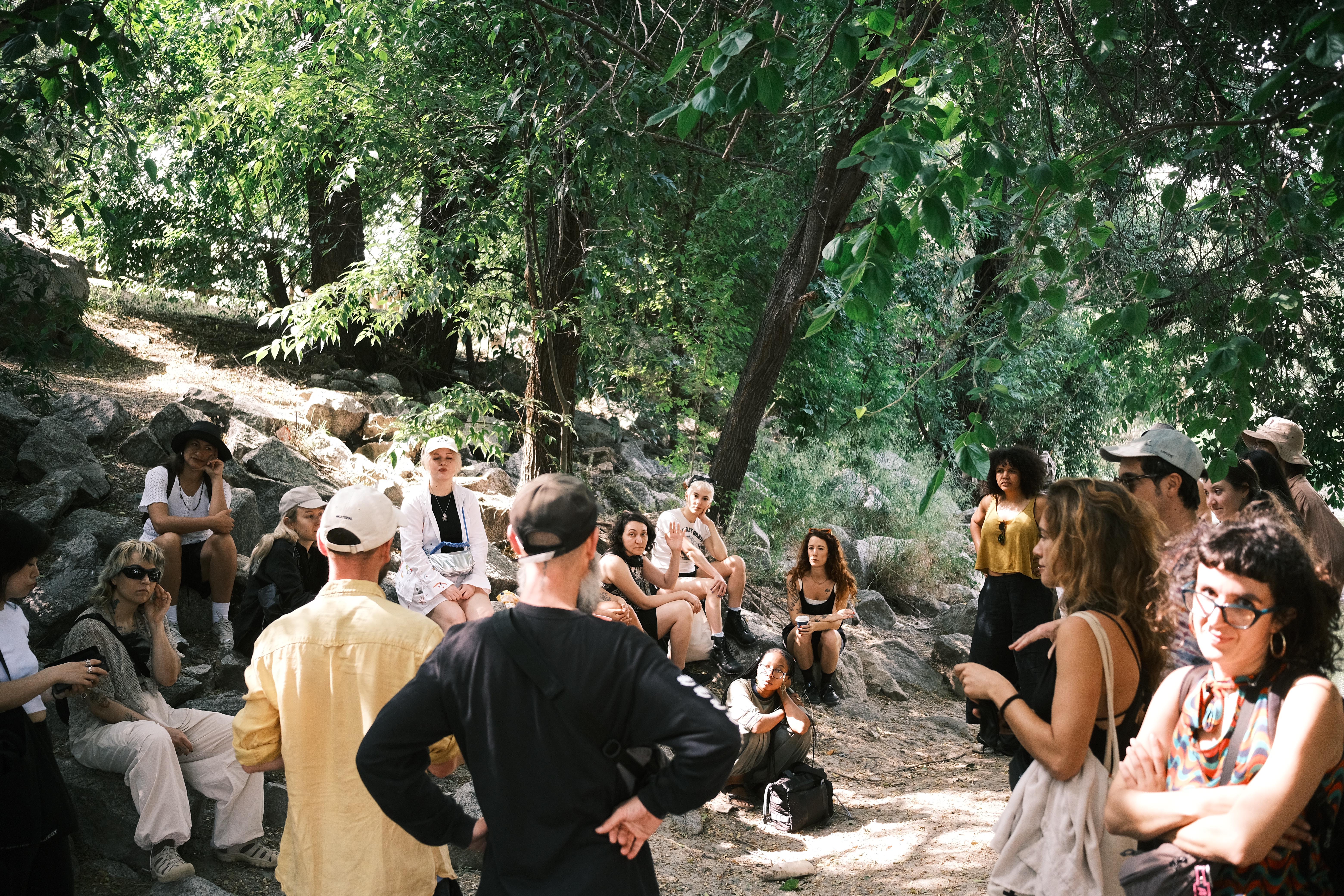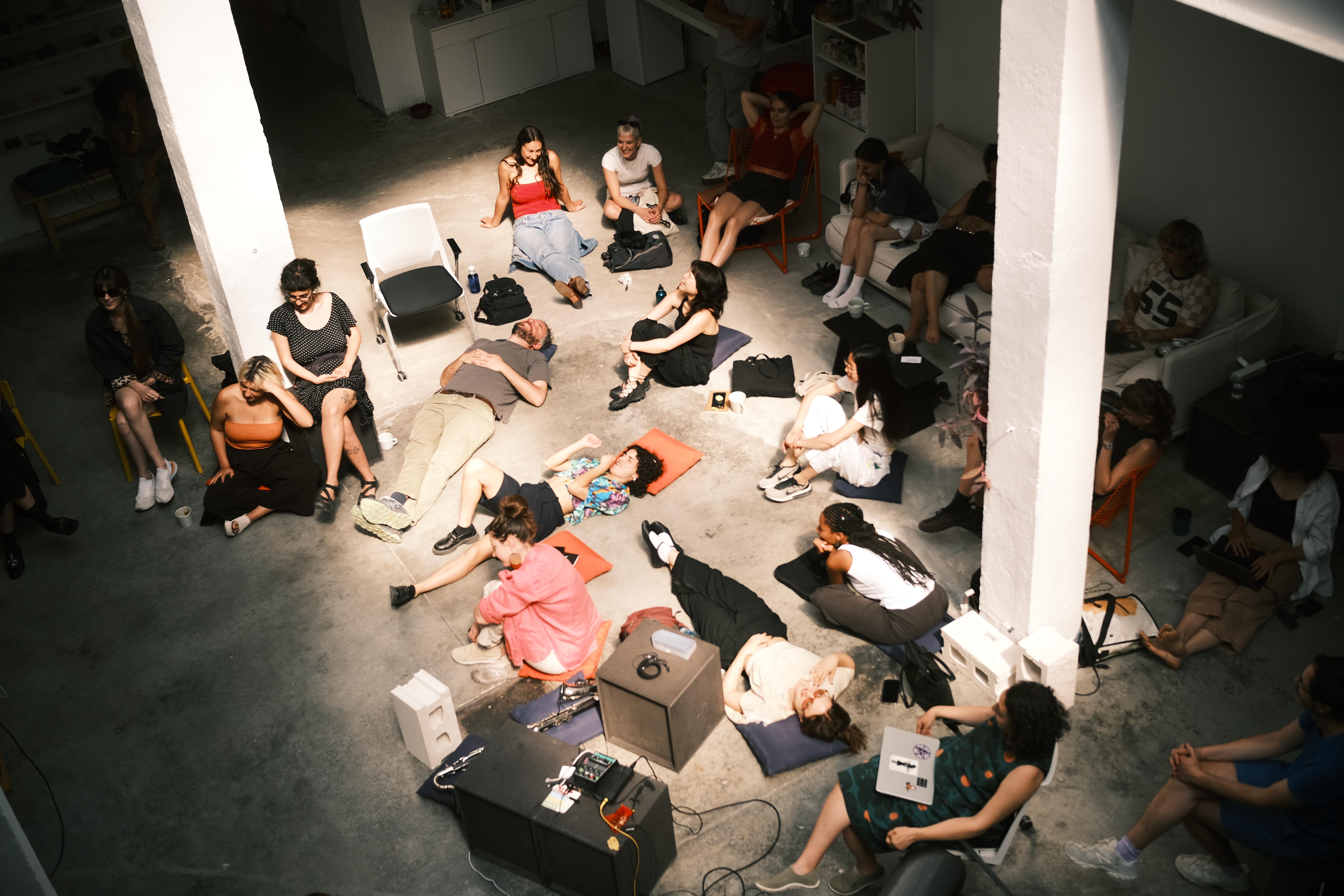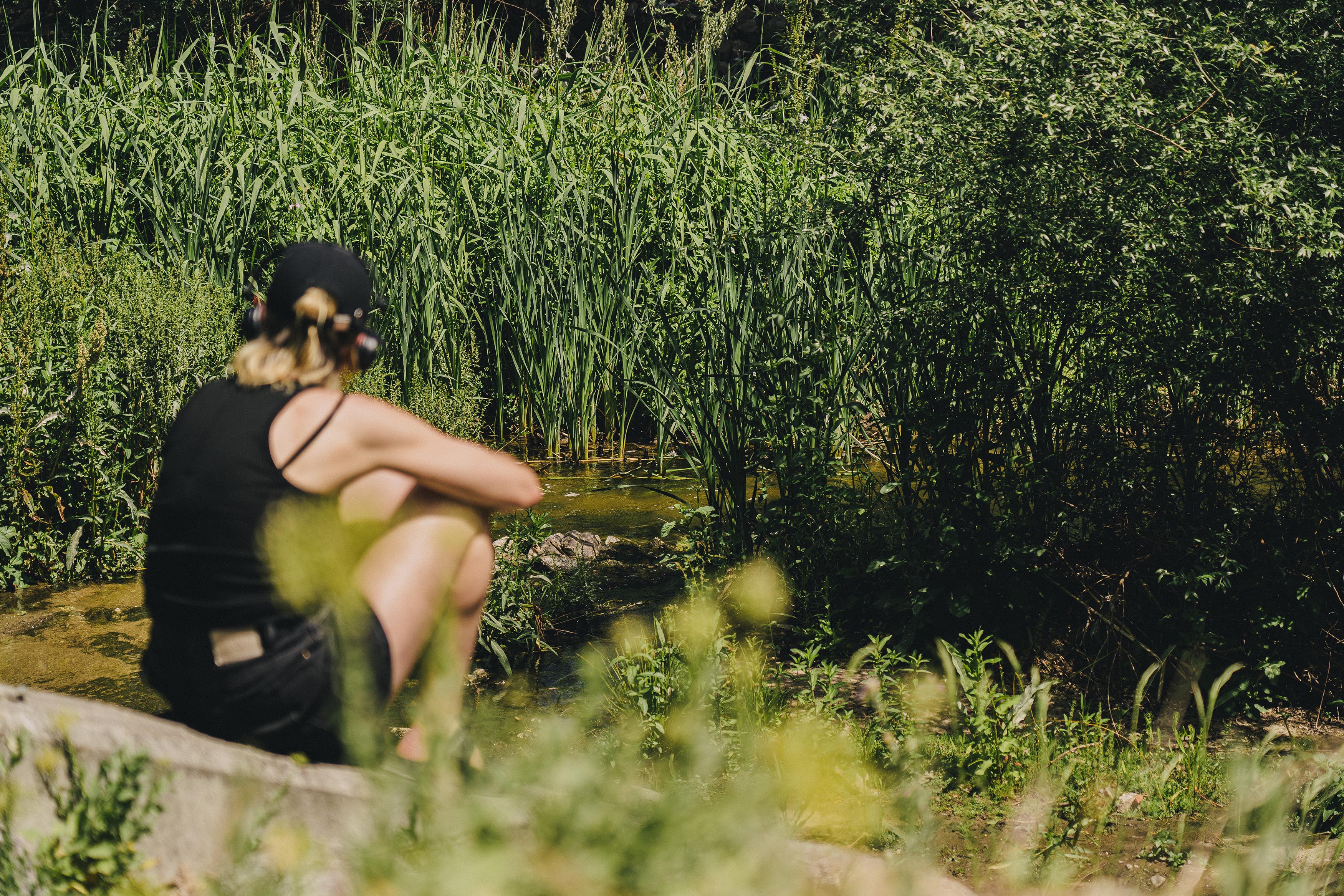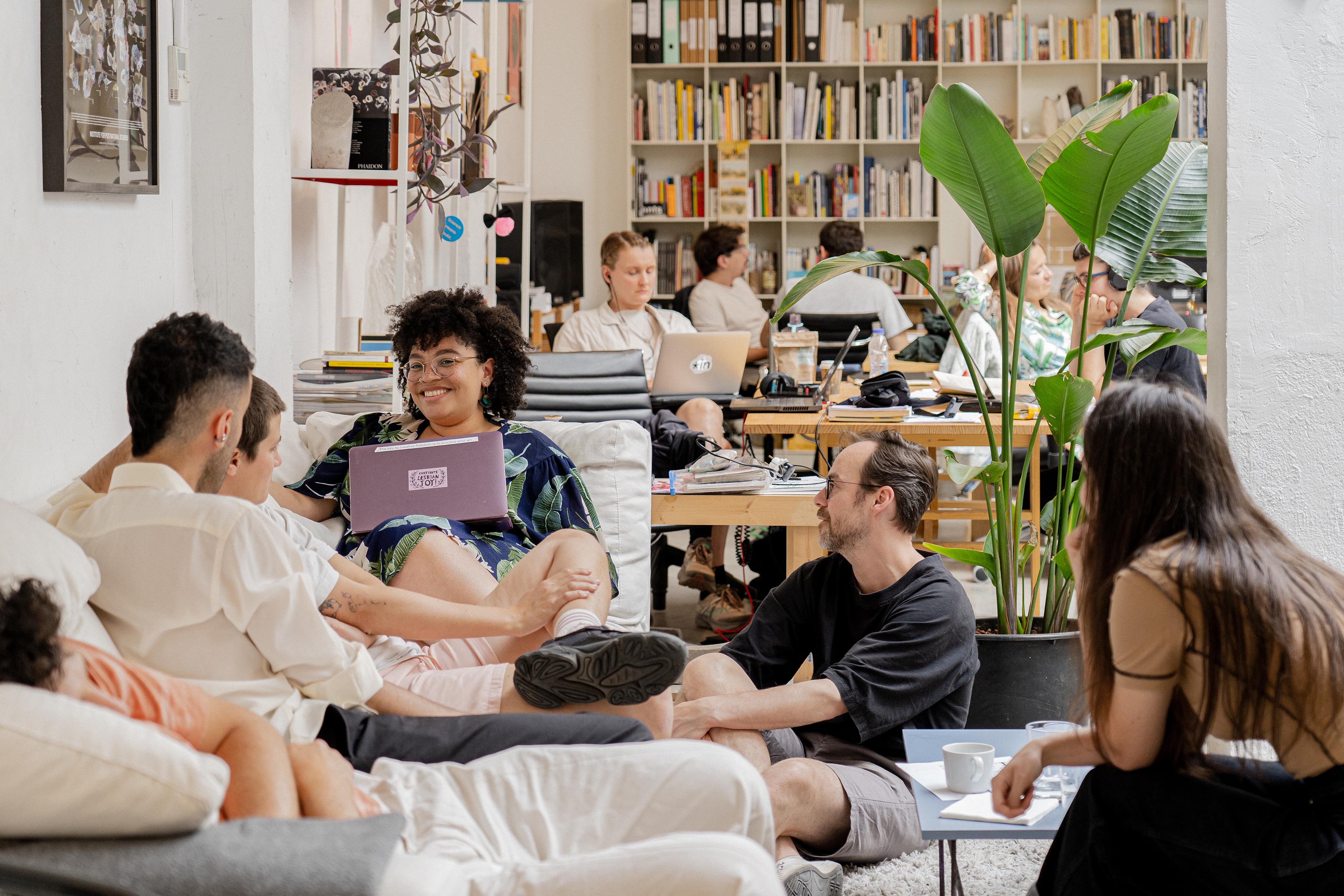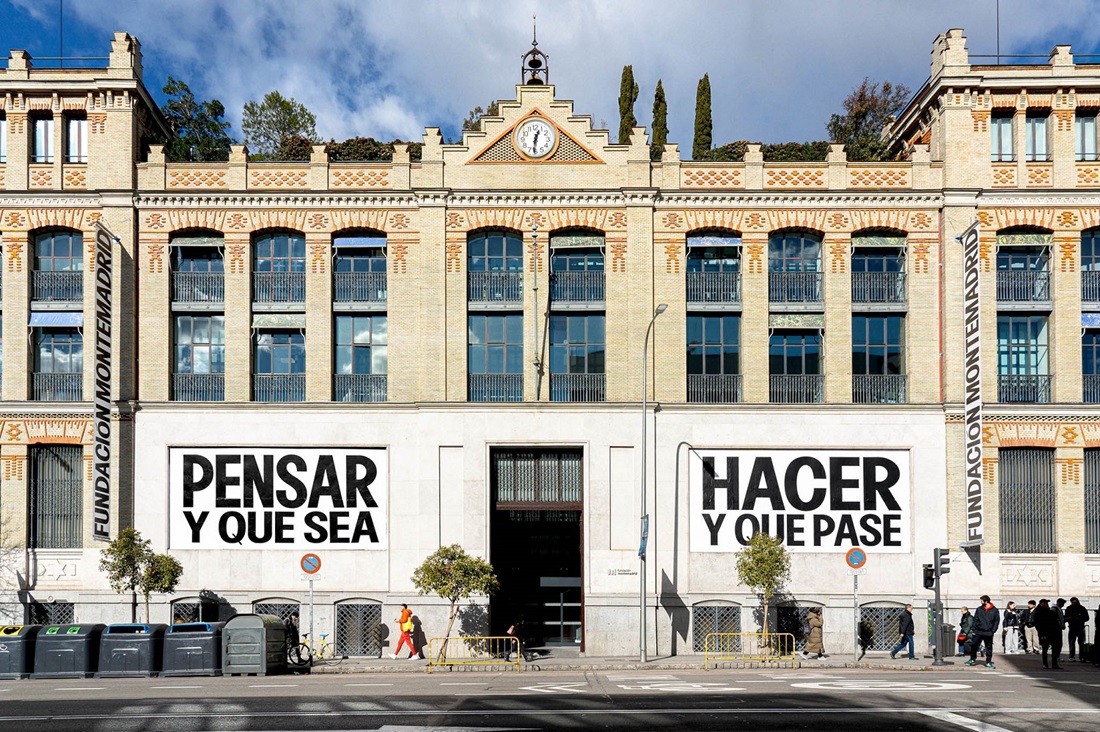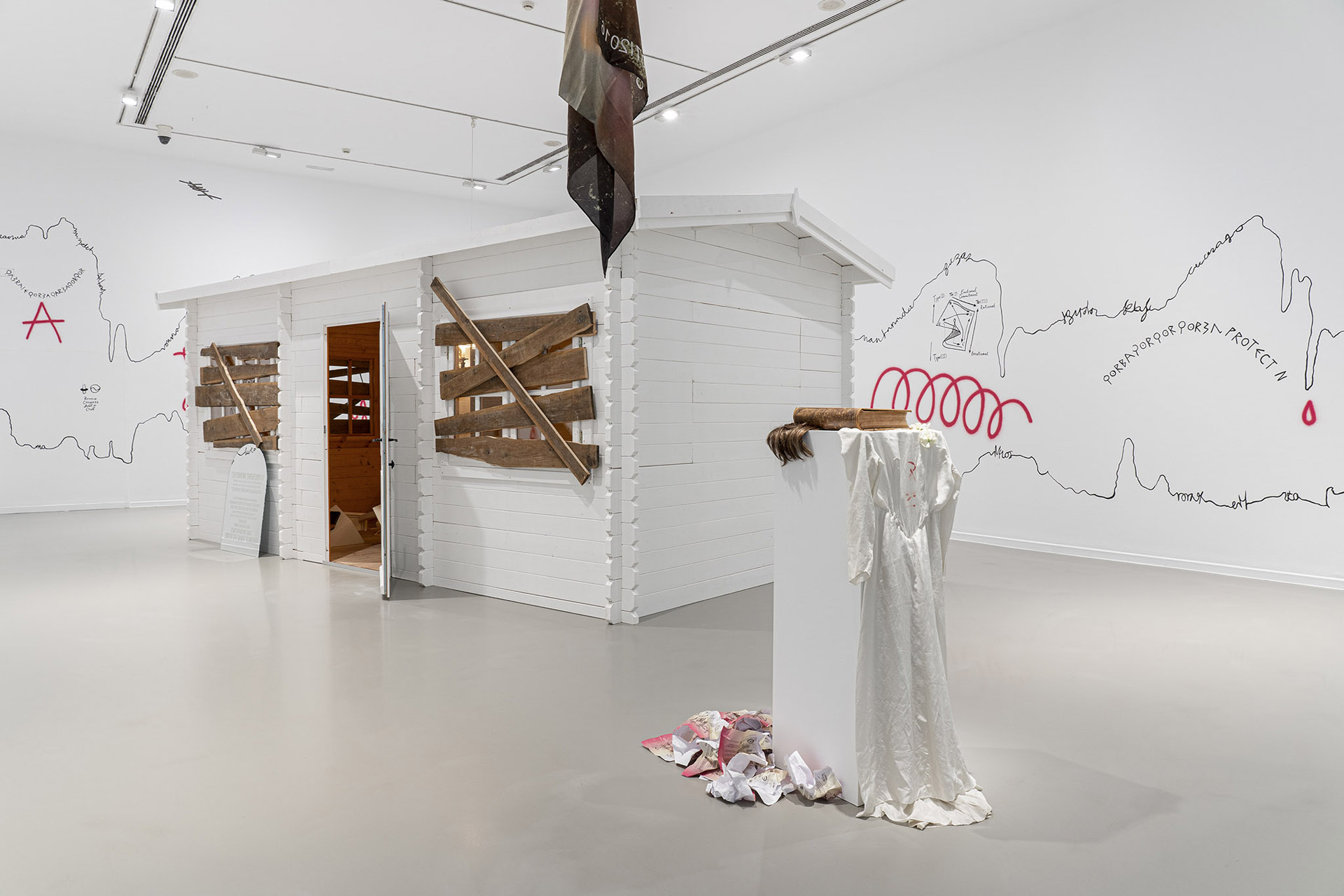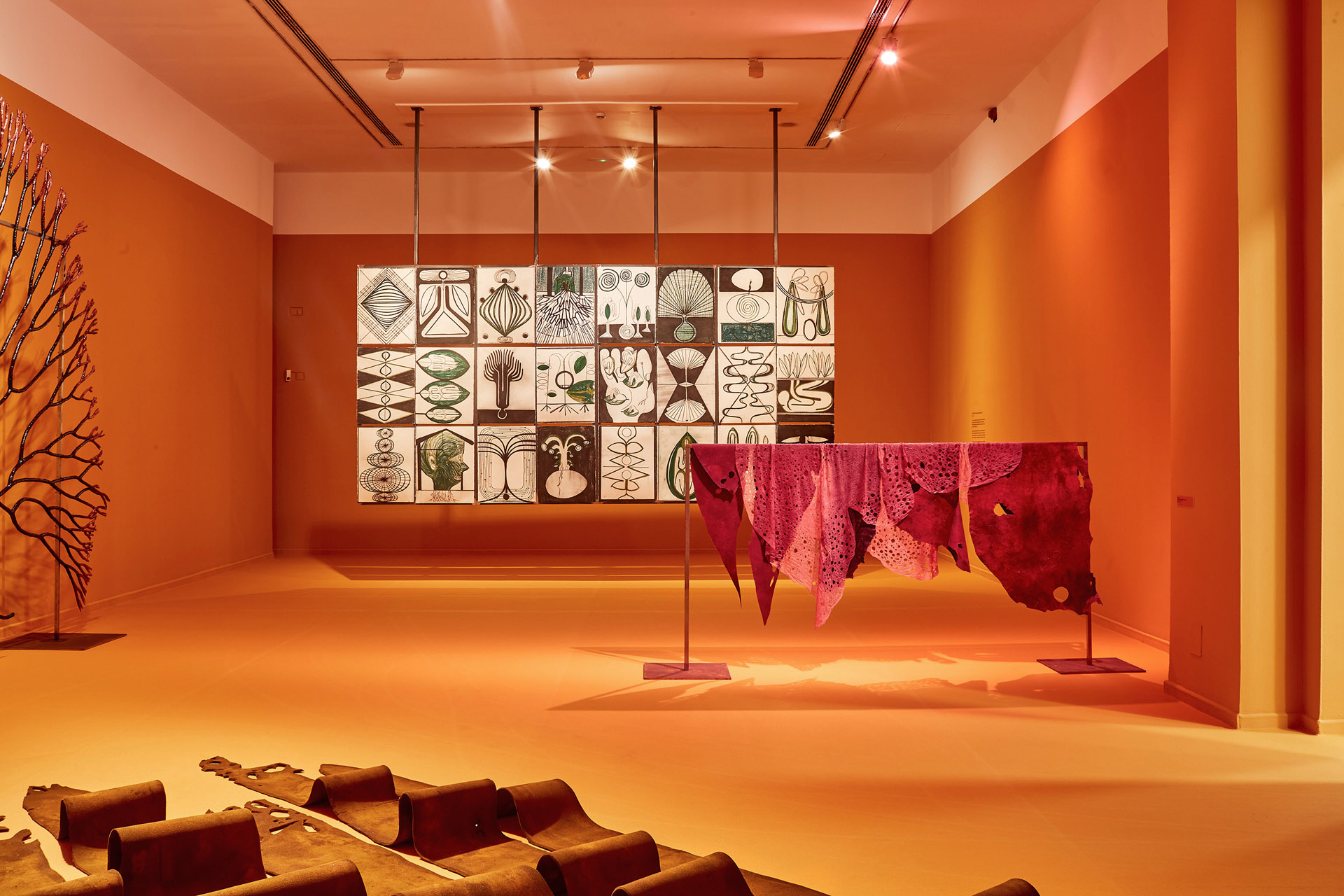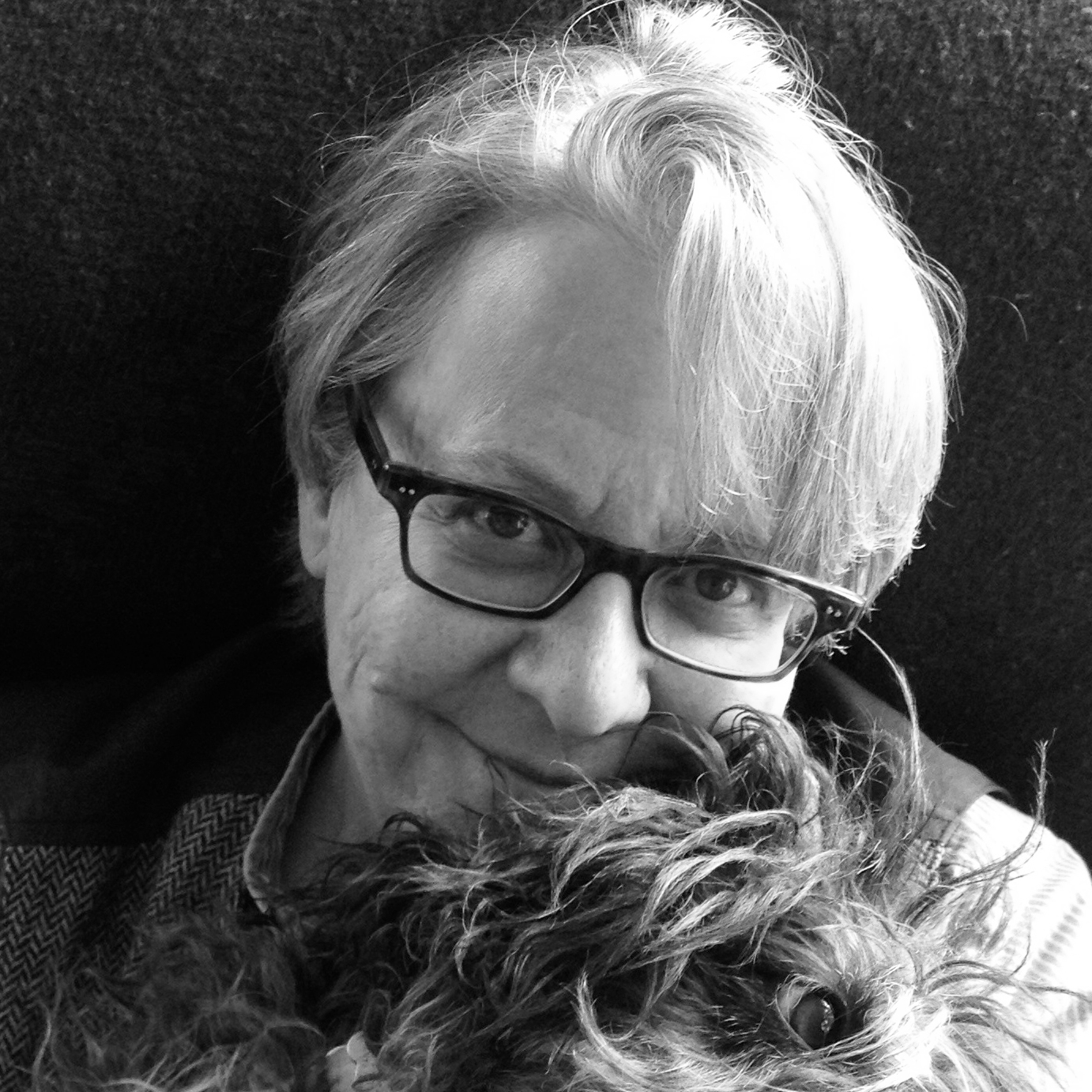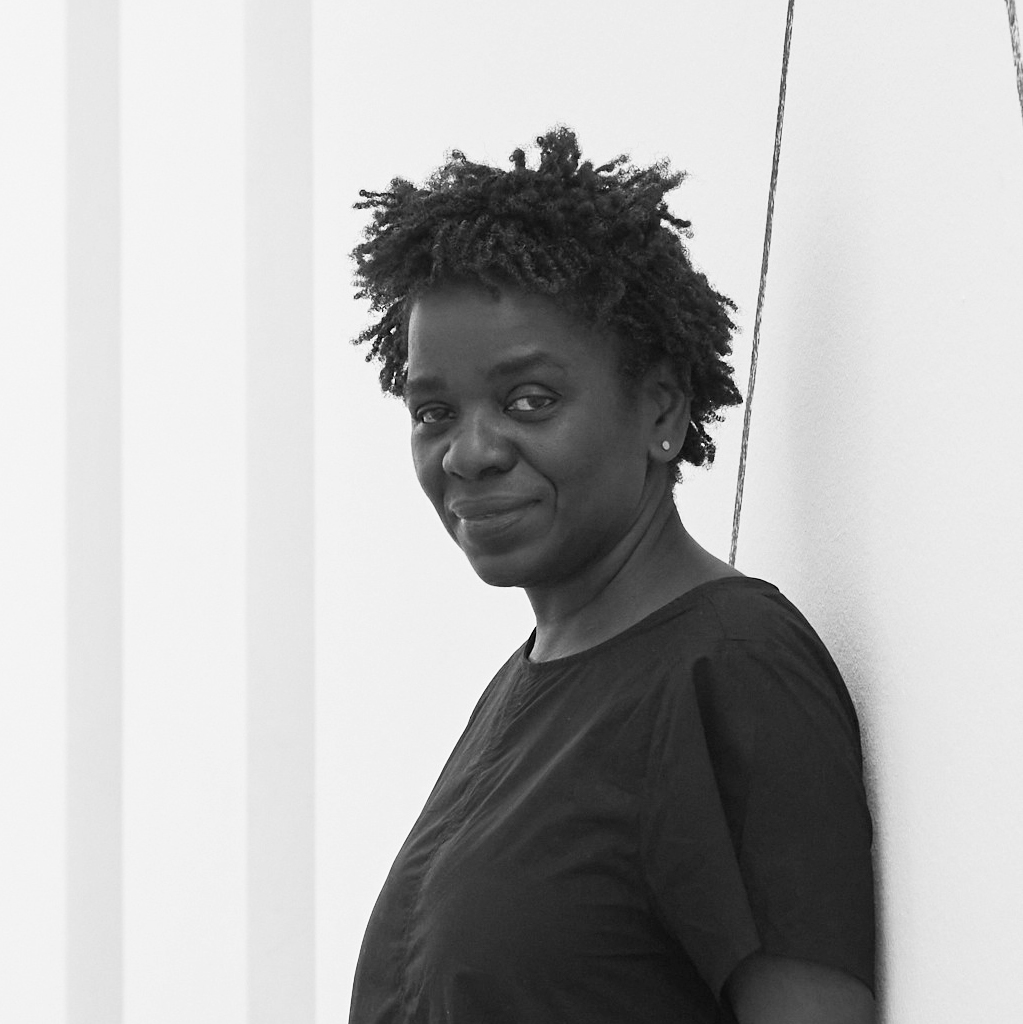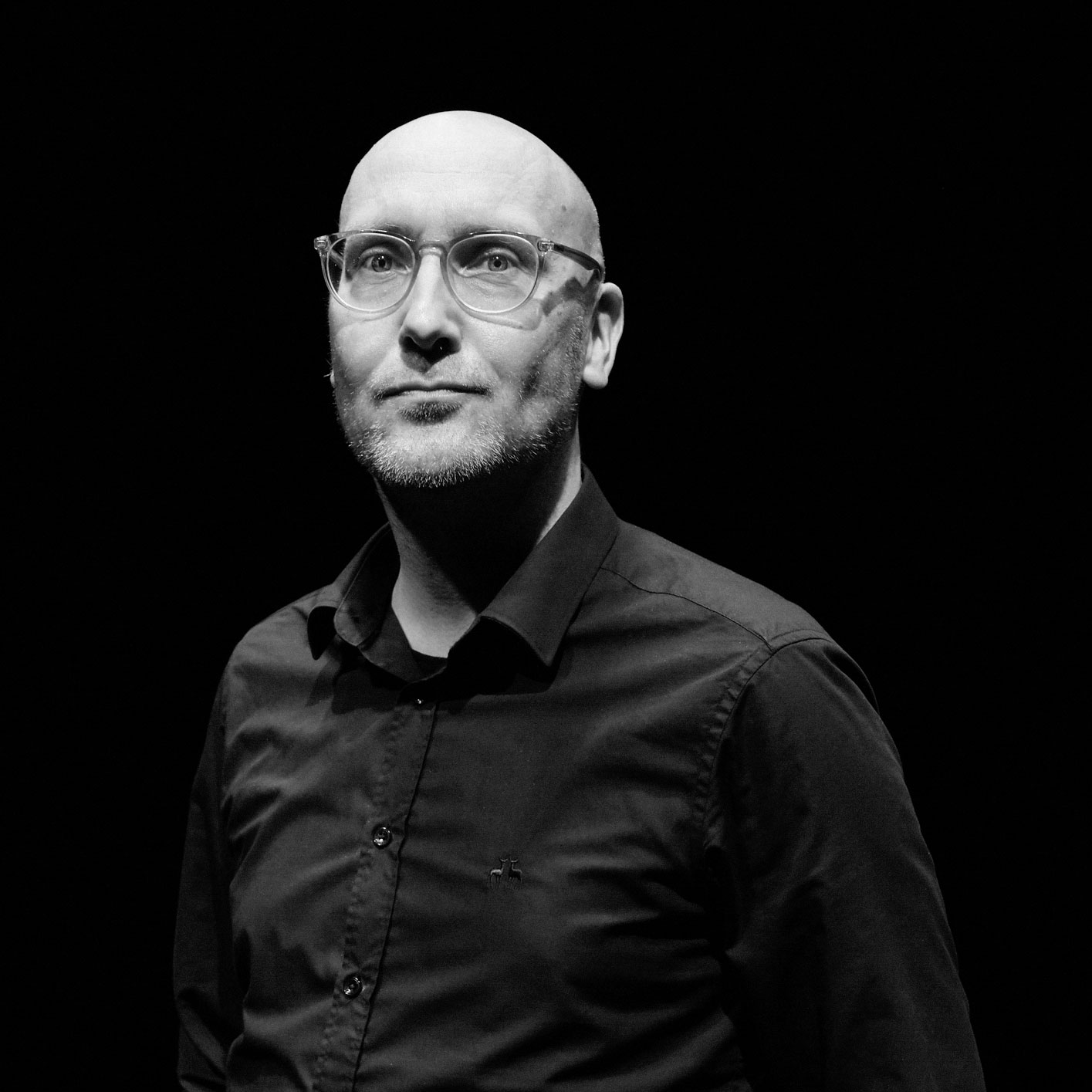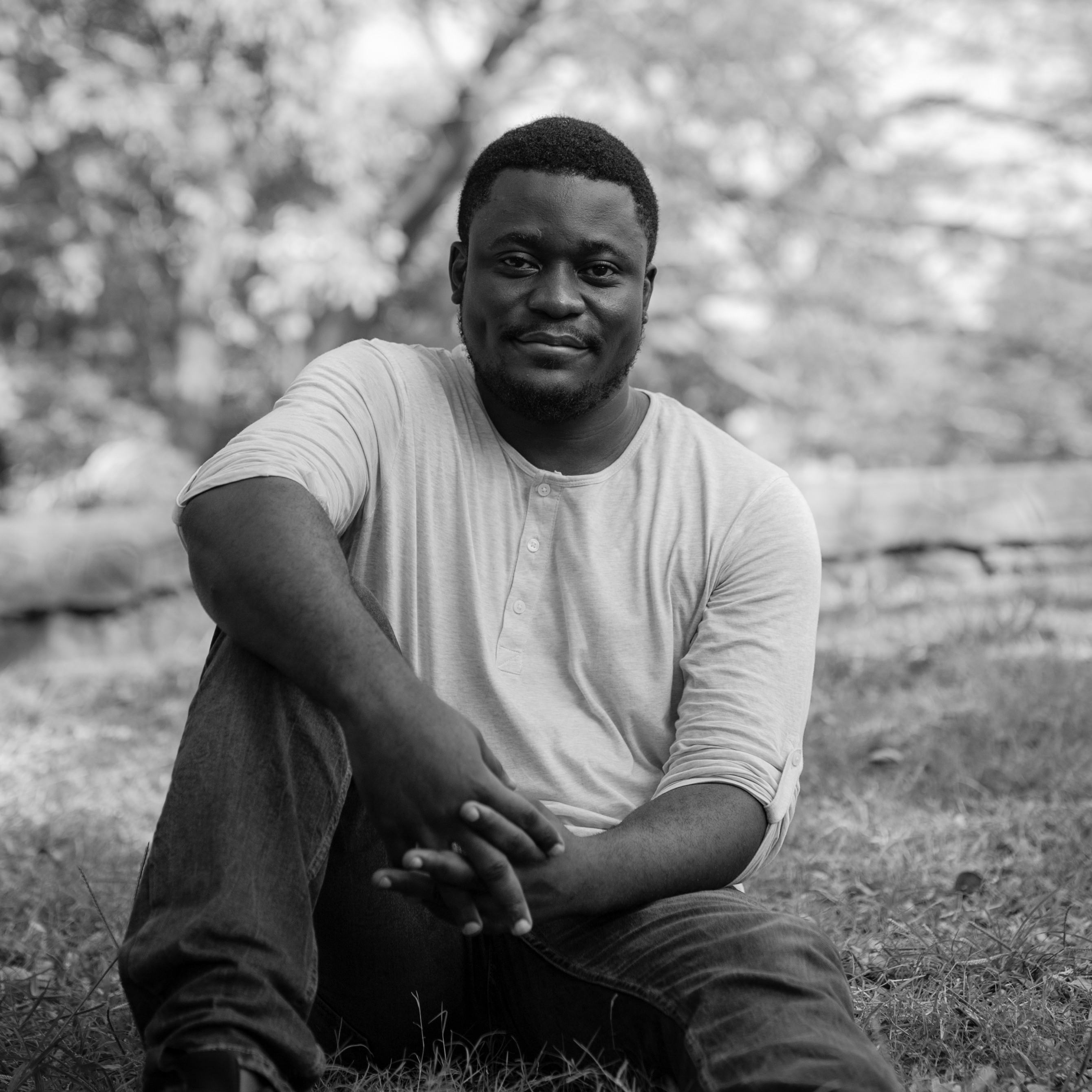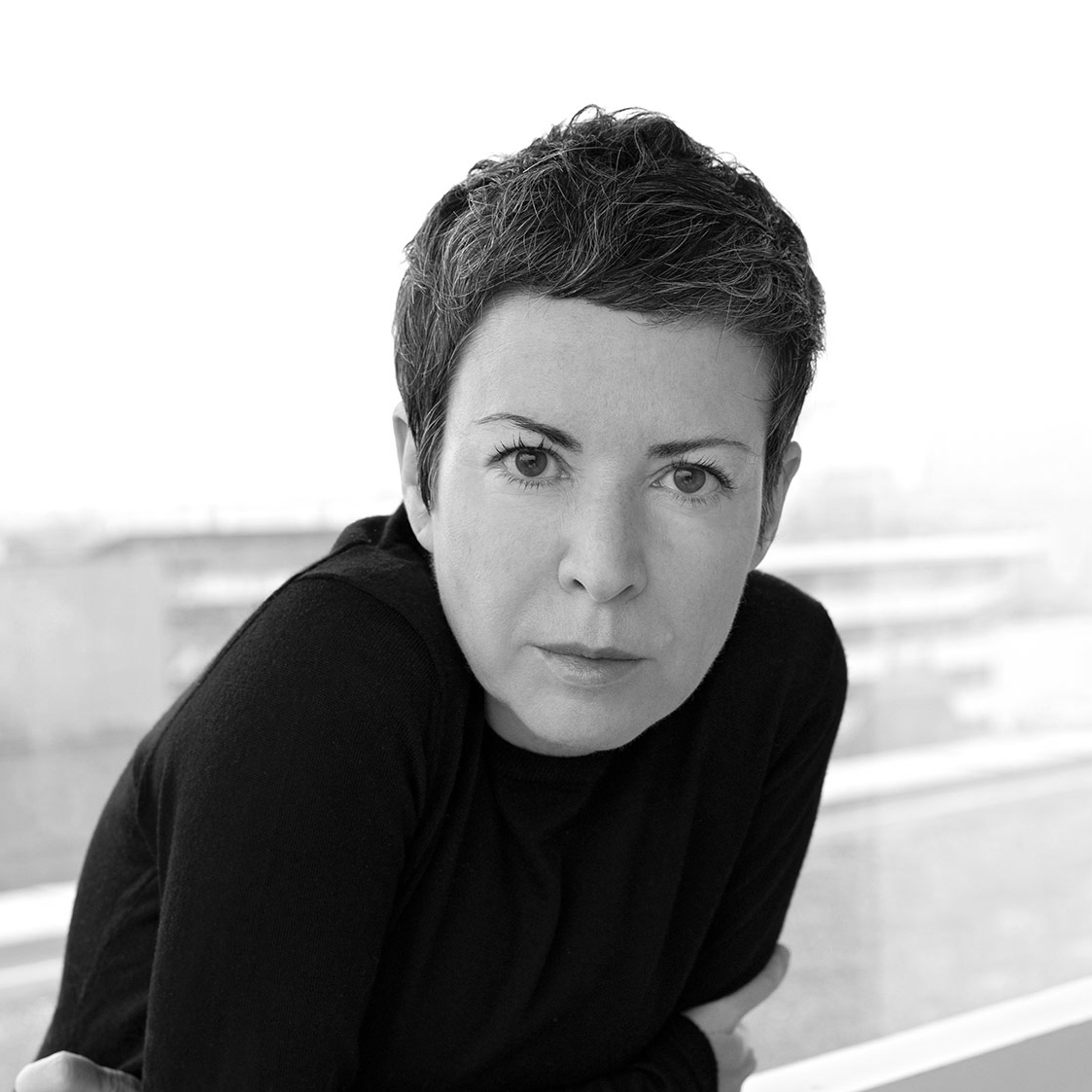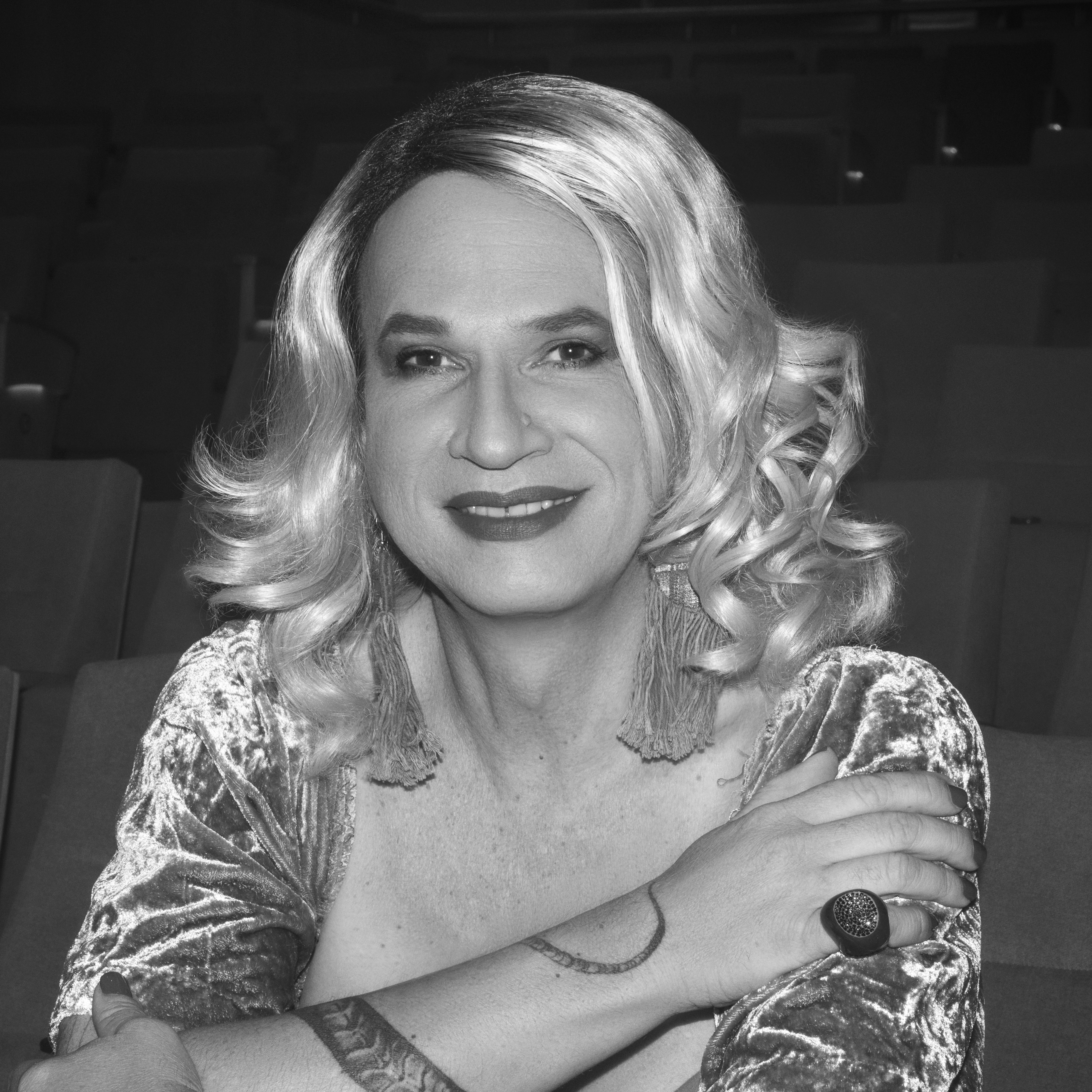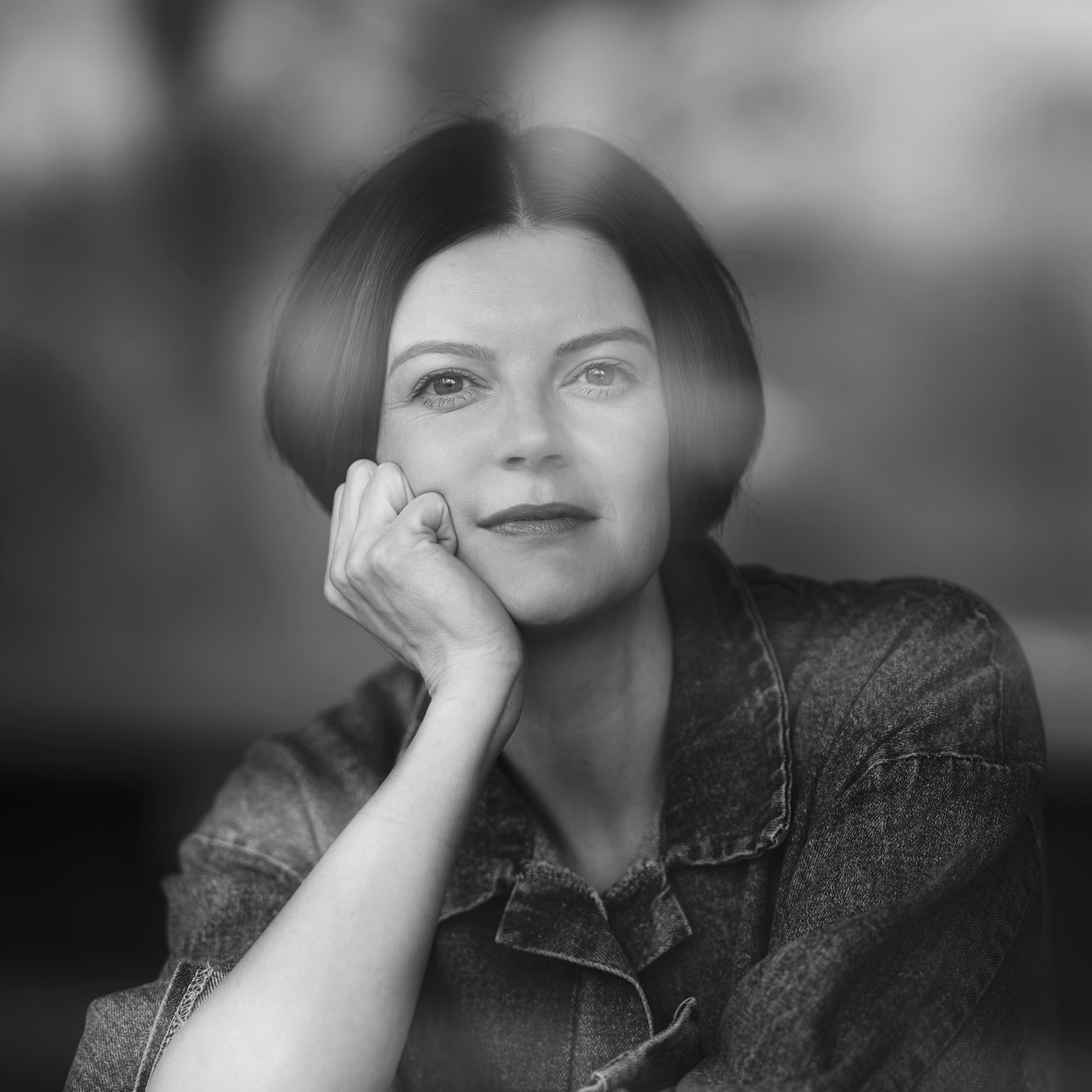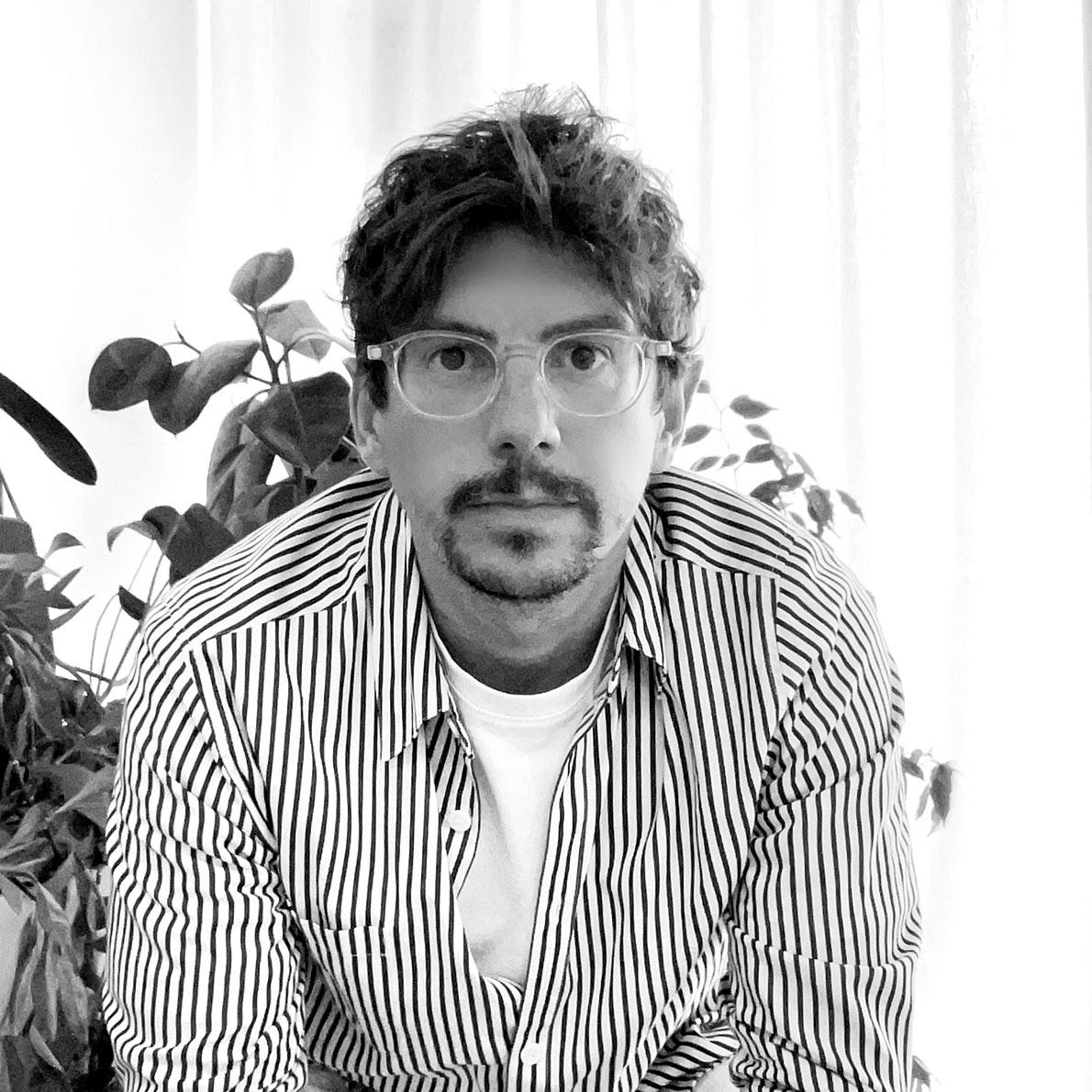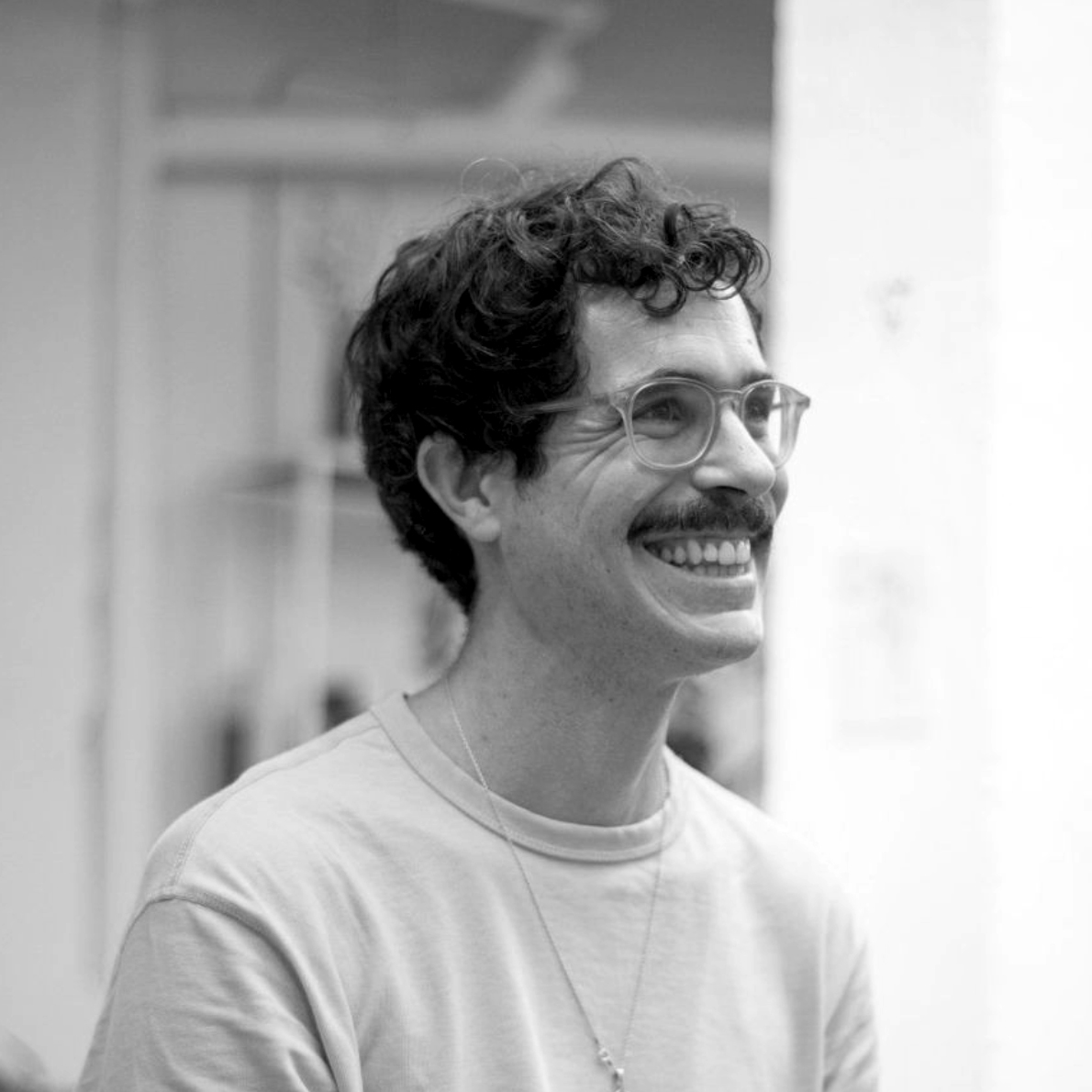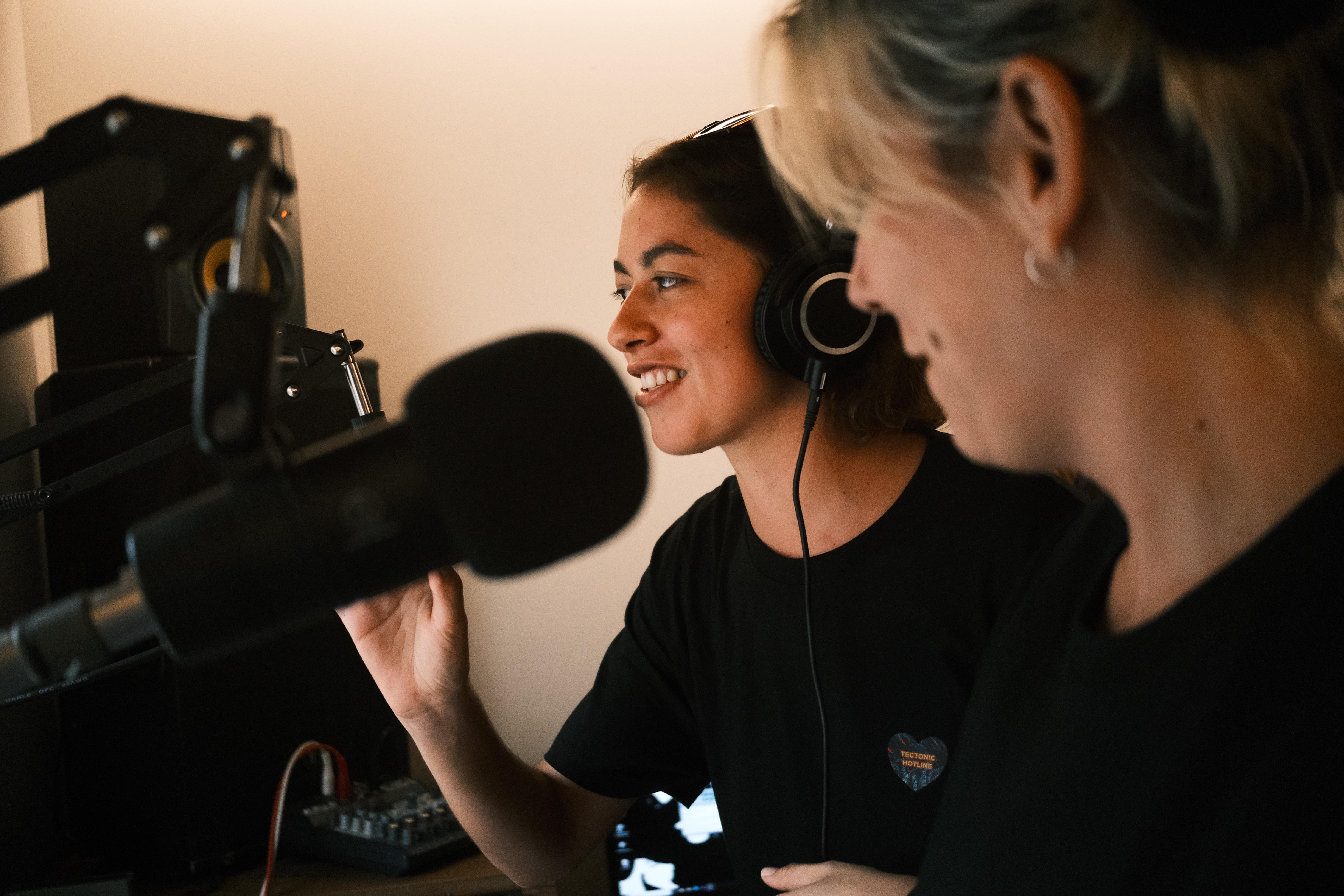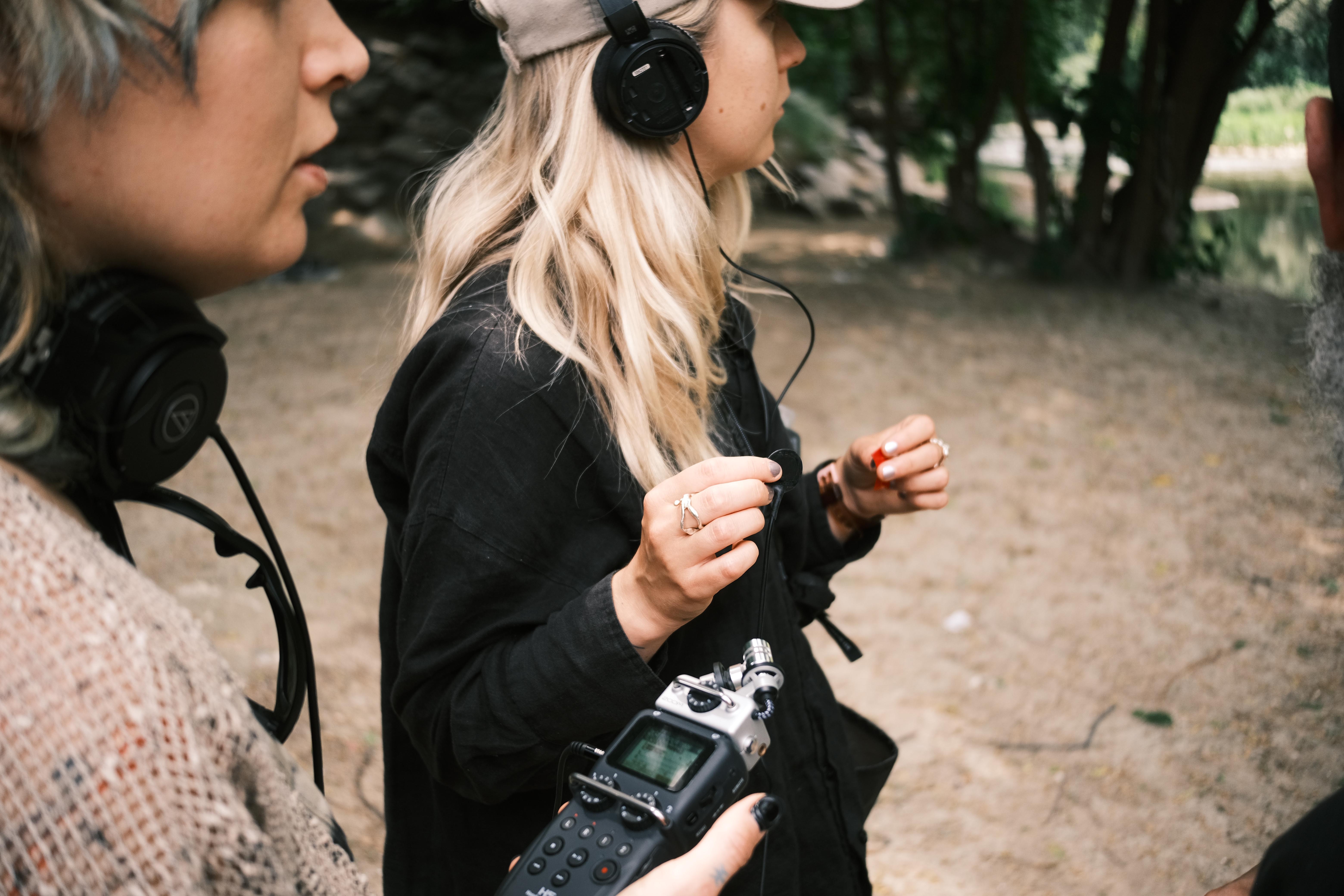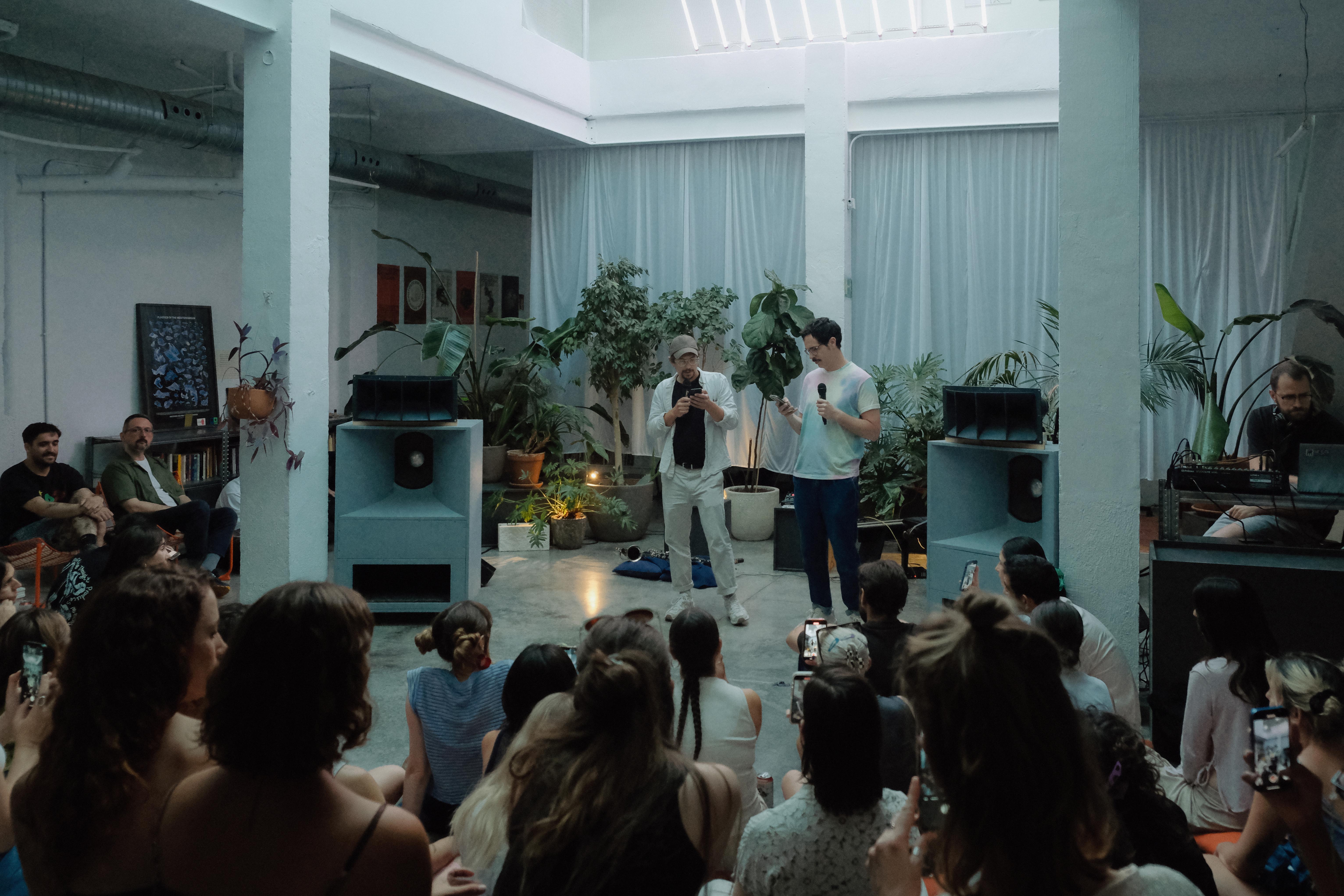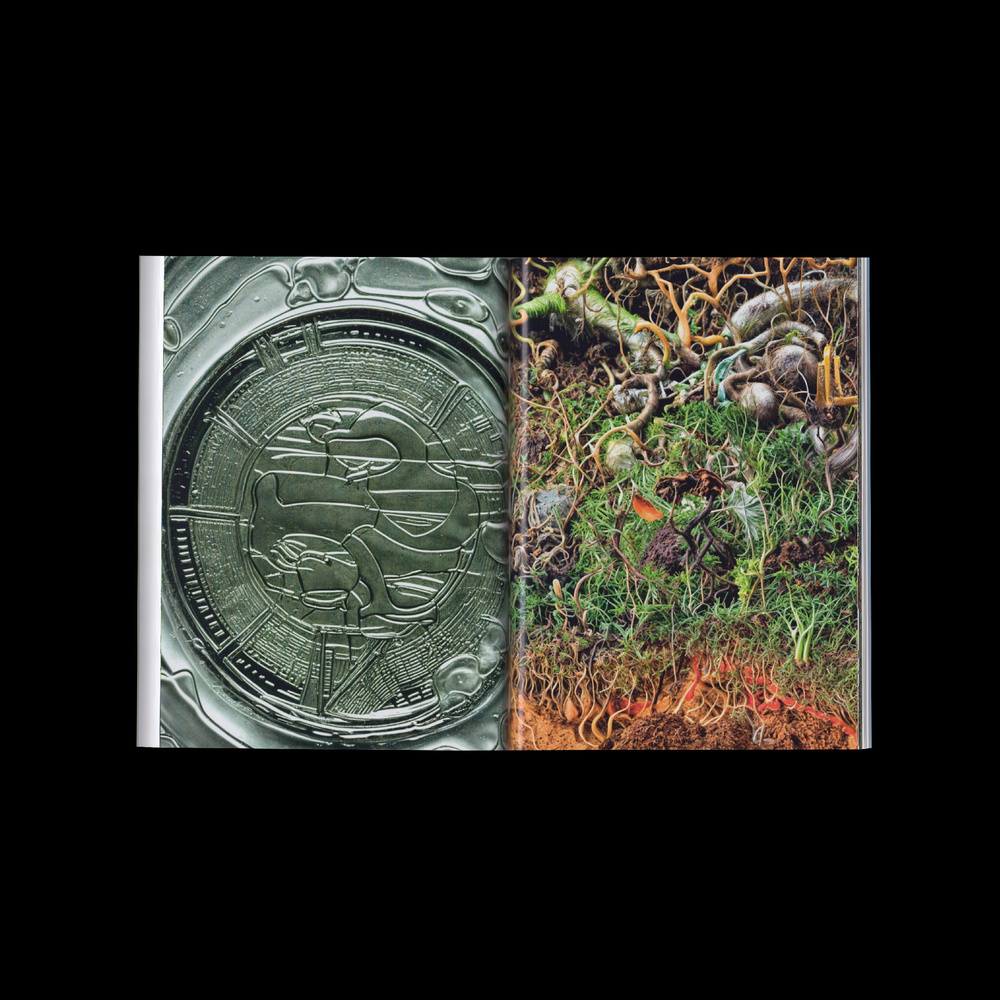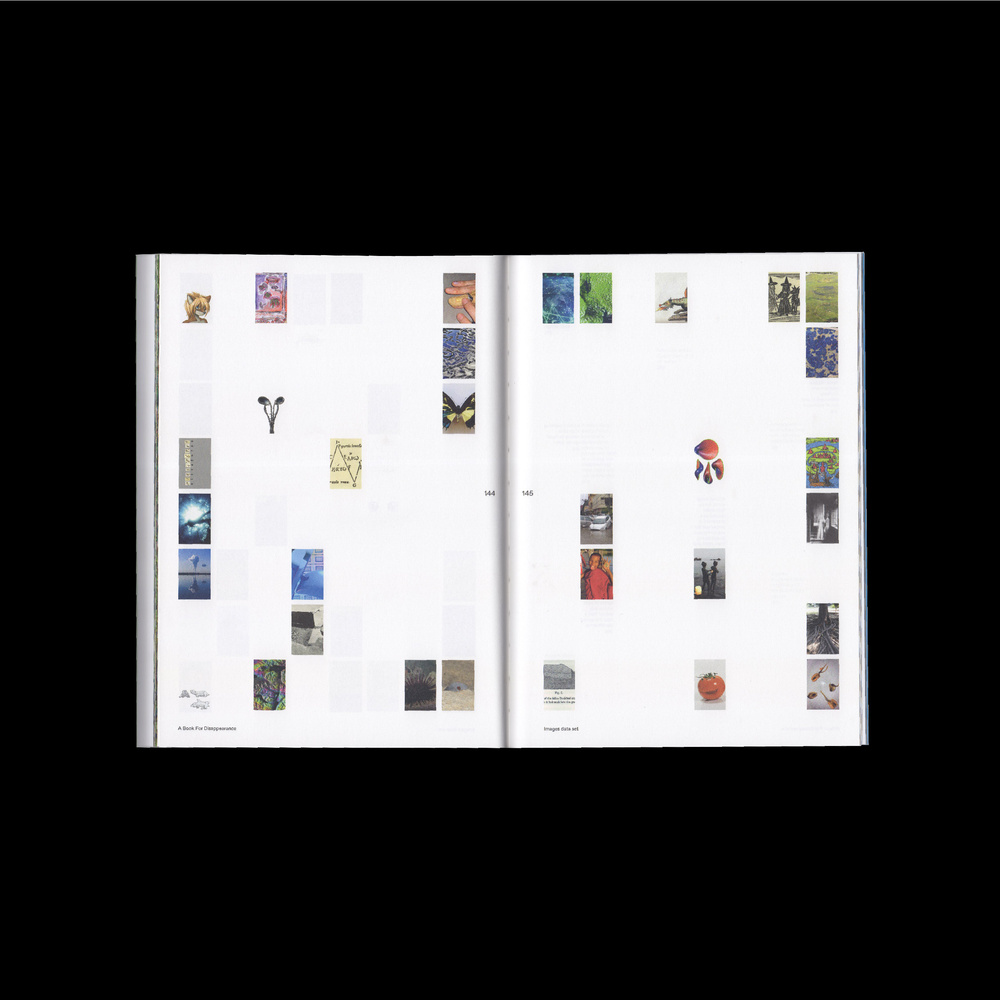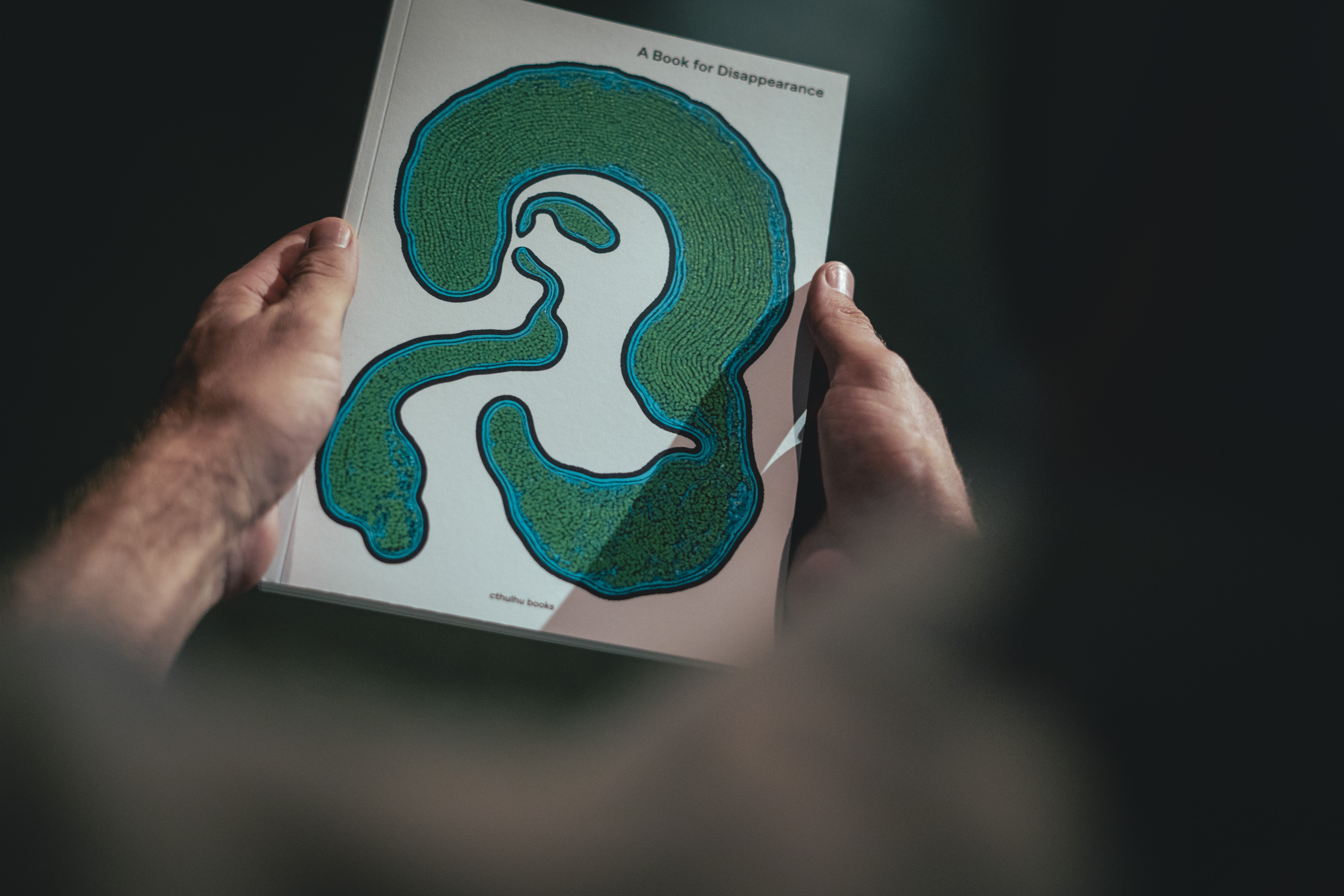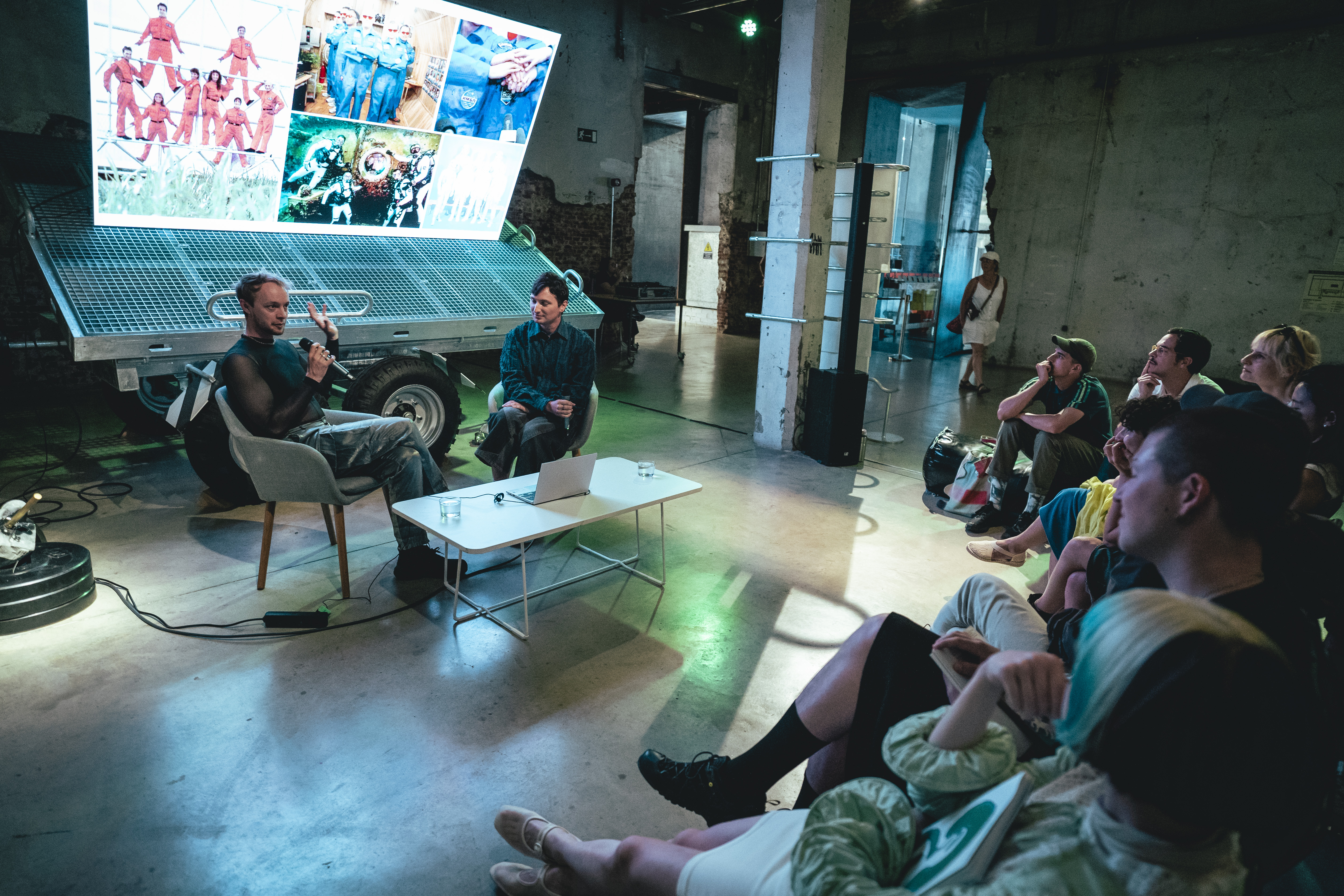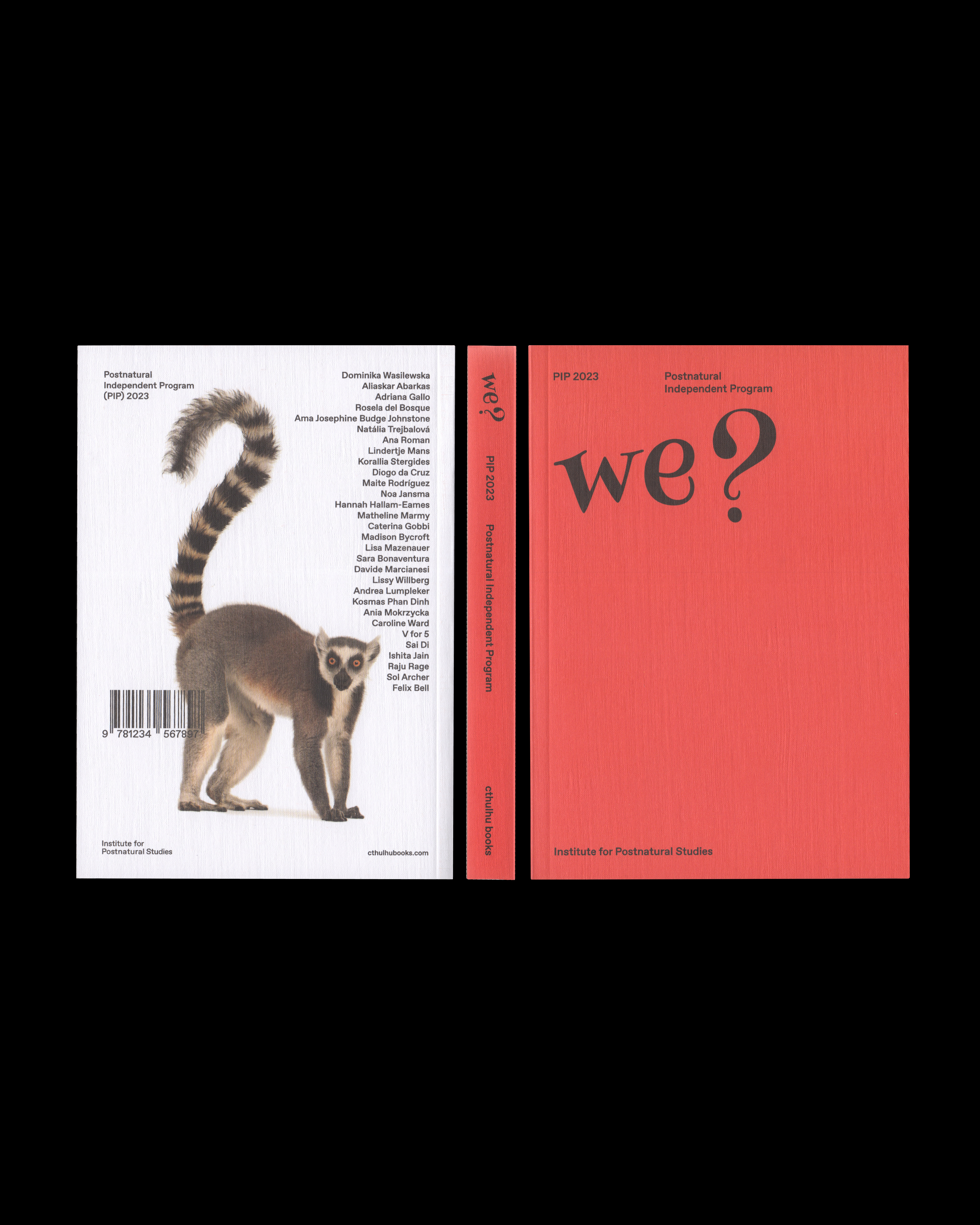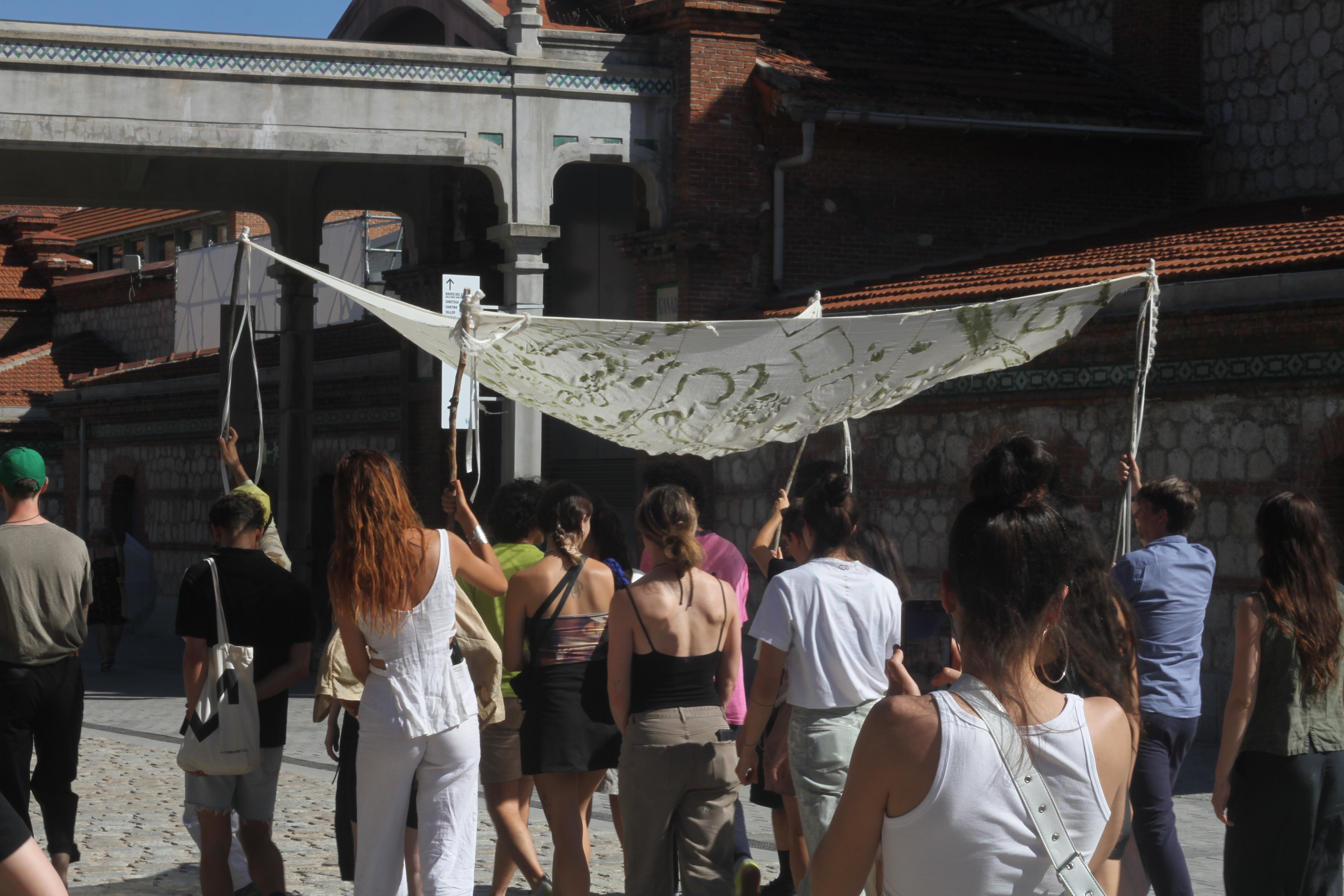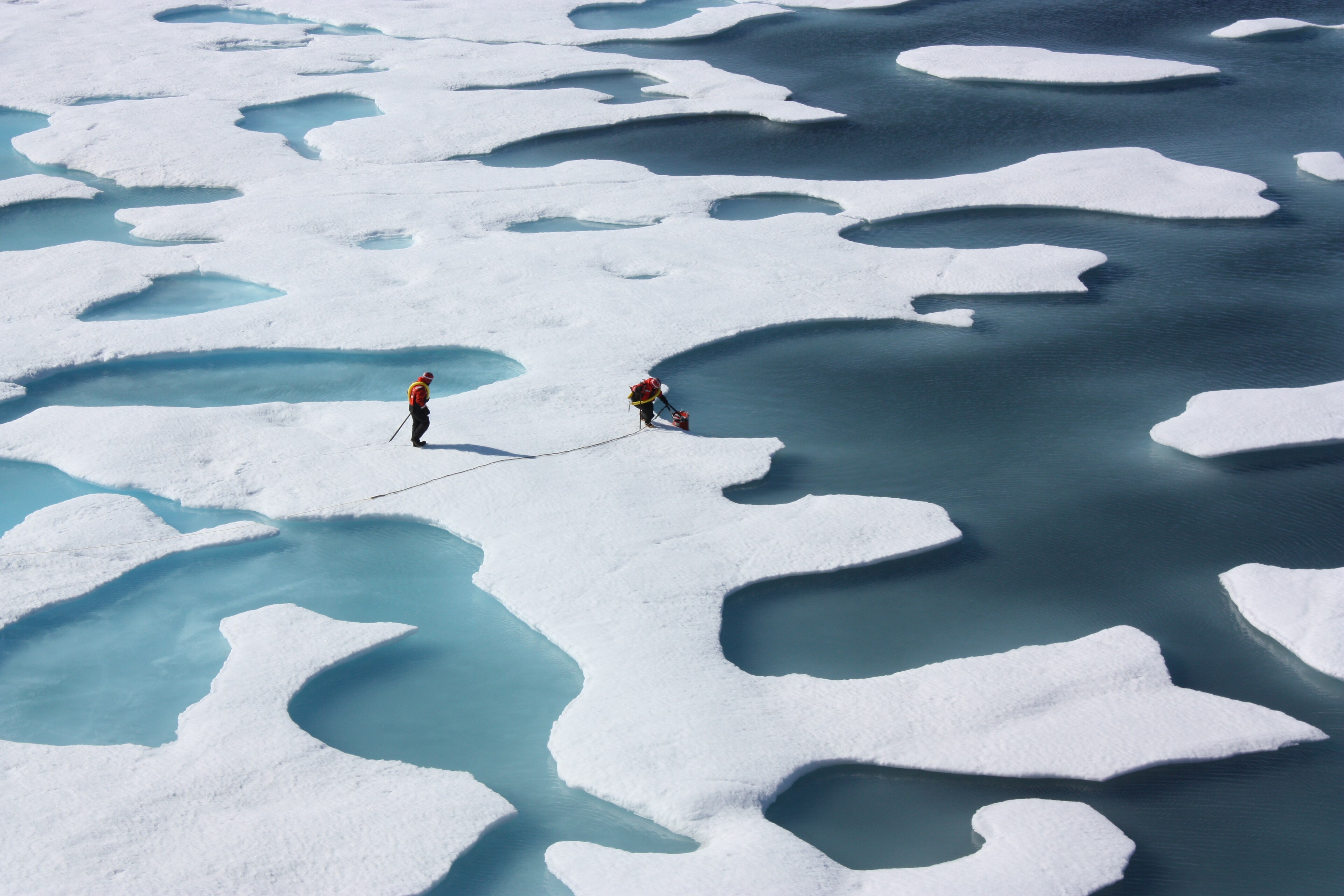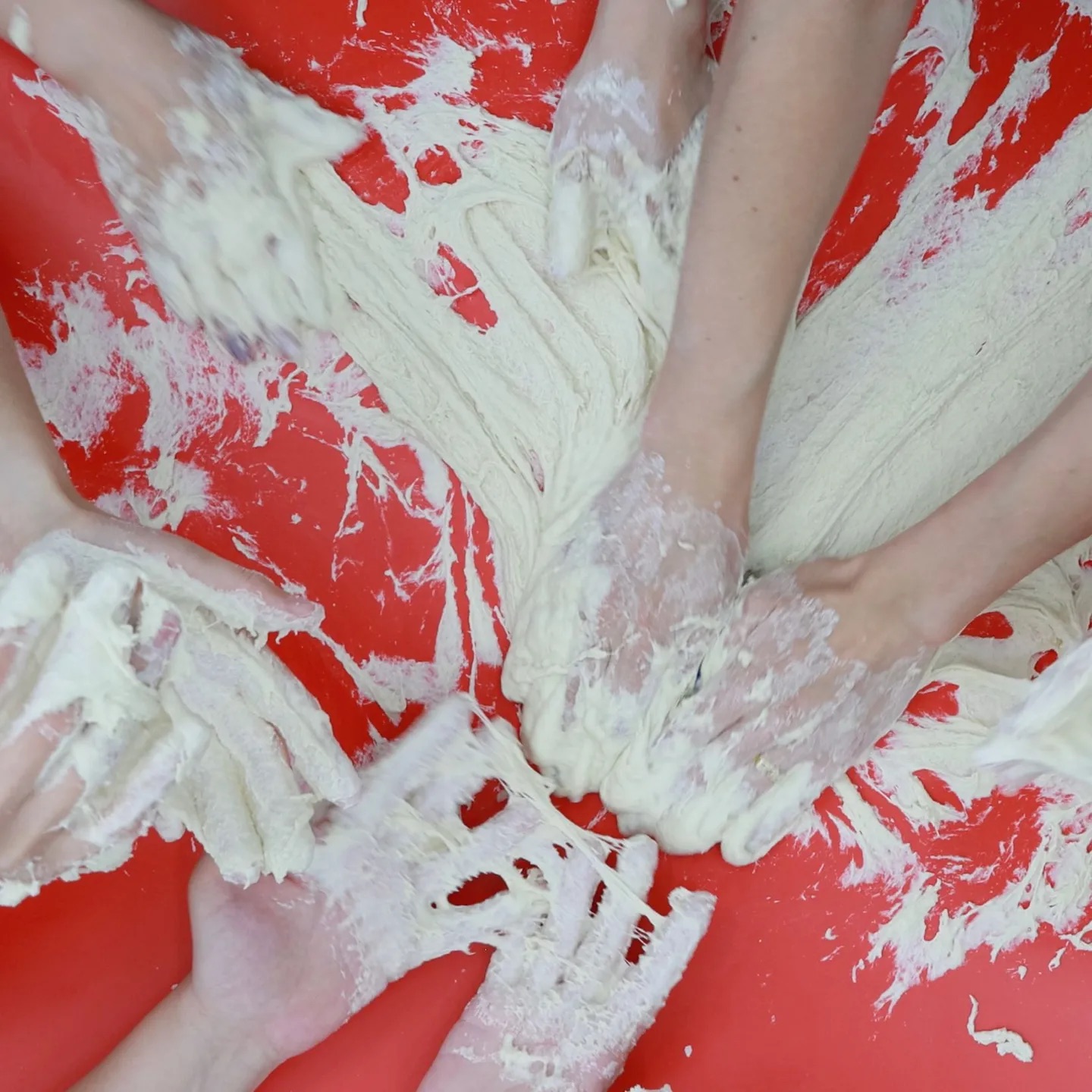
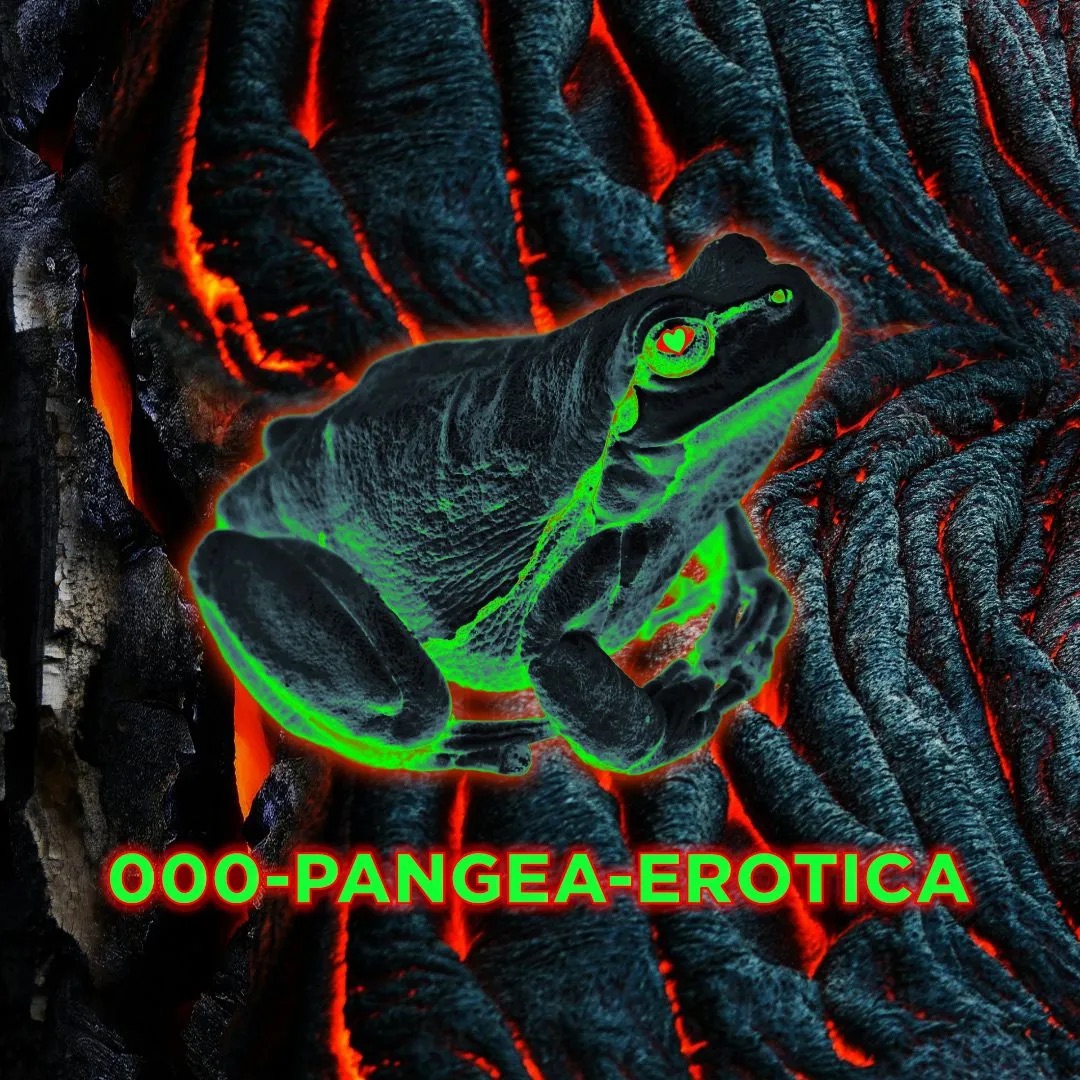

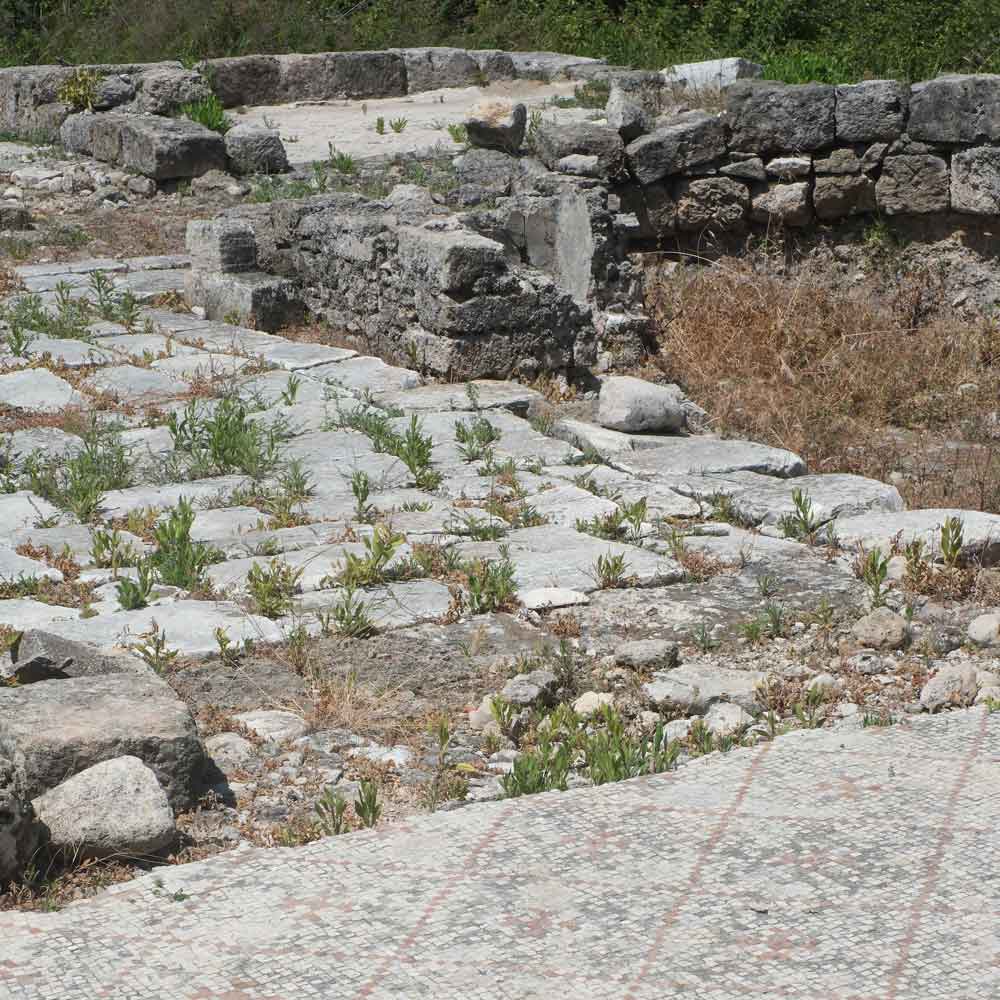
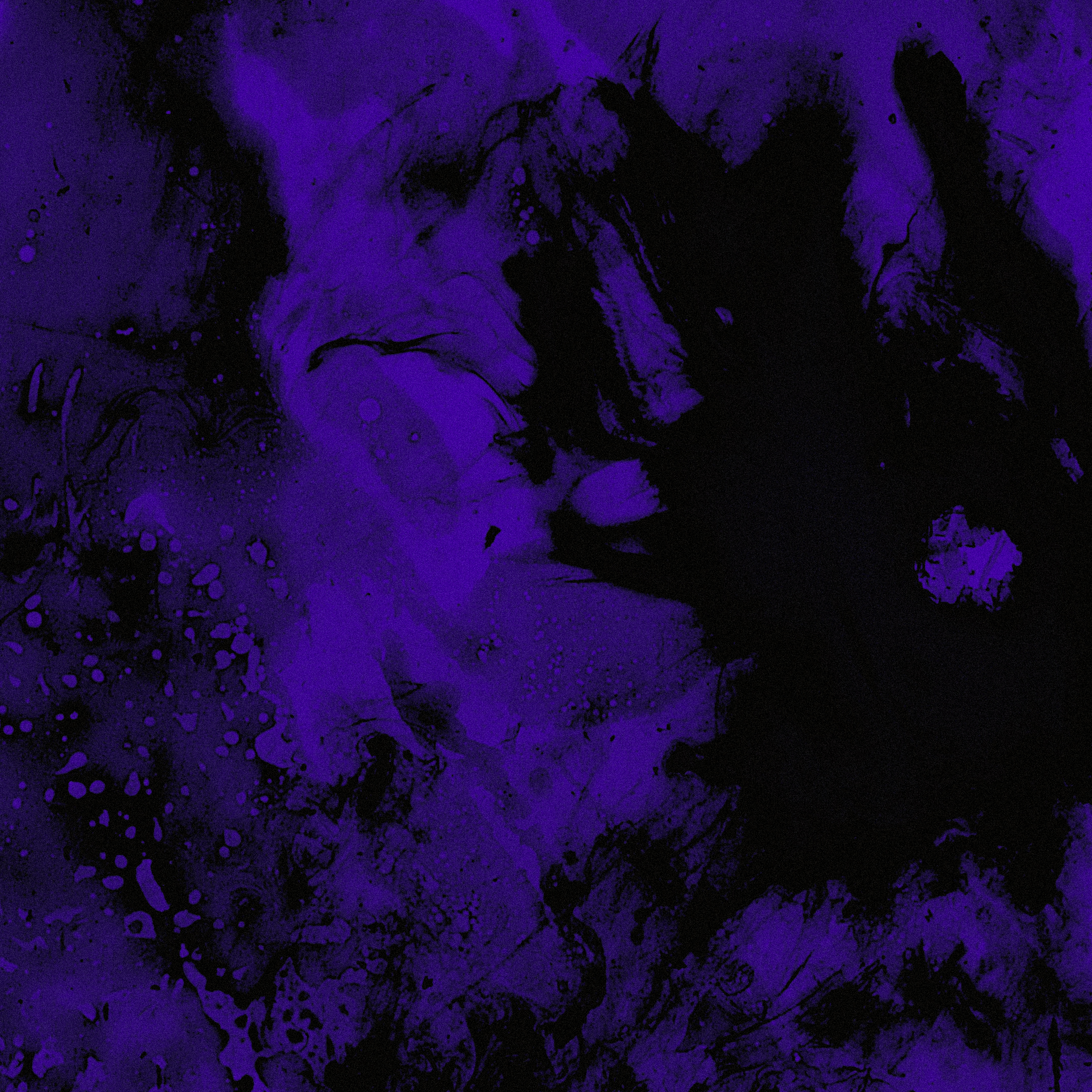
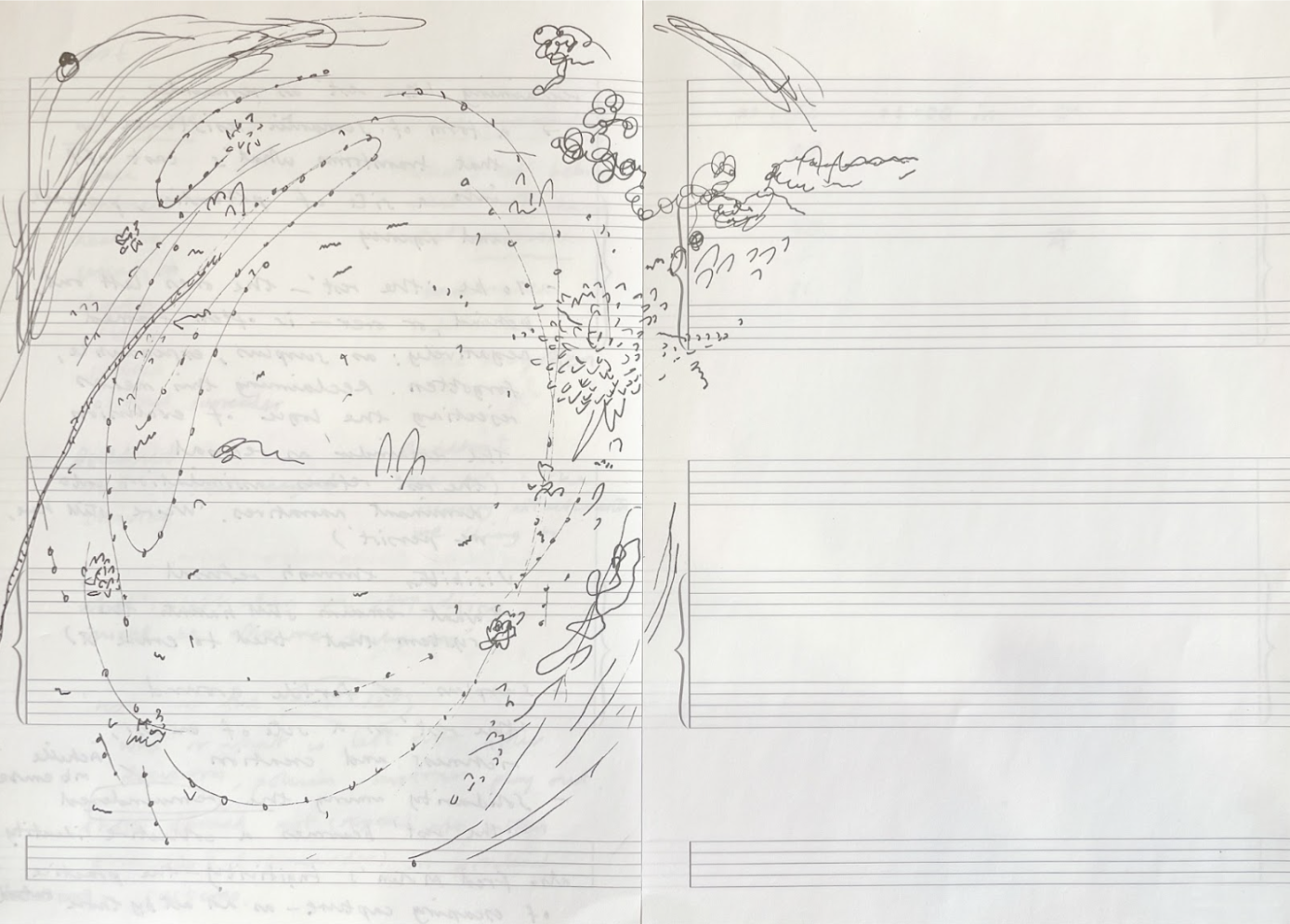
POSTNATURAL INDEPENDENT PROGRAM 2026
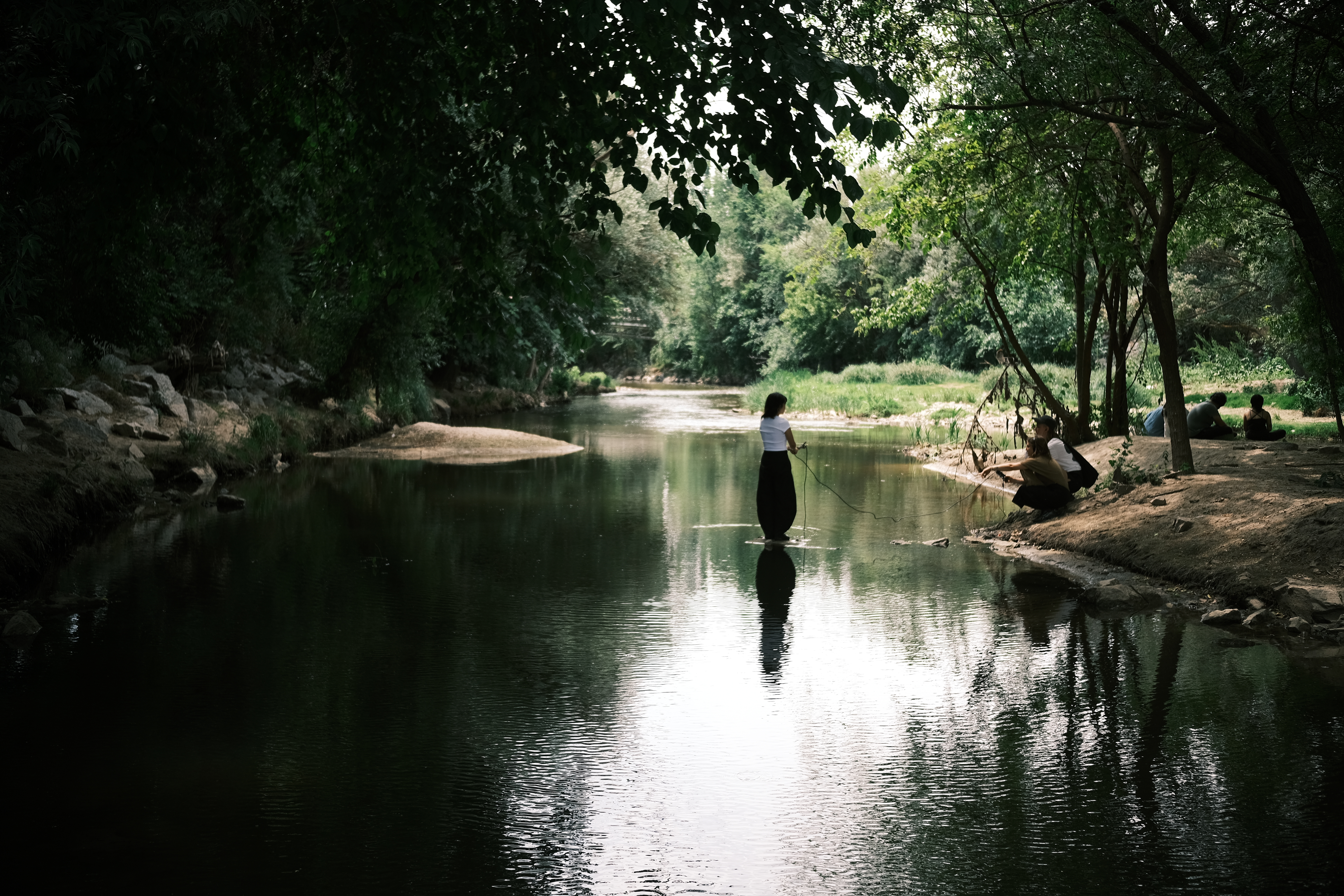
GENERAL INFO
- DATES
-
From January 19th to June 6th, 2026 (6 months)
- APPLICATIONS
-
Closed on November 16, 2025
- FORMAT
-
Hybrid. Online sessions and 2 in-person encounters
- LANGUAGE
-
English
- SCOLARSHIPS
-
Limited opportunities available. See details below.
ABOUT
The Independent Program offered by the Institute for Postnatural Studies (IPS) is a hybrid learning space that offers theoretical tools, embodied learning, community building spaces, and expertise to define and examine postnature as a framework for contemporary creation. The Postnatural Independent Program (PIP) offers an experimental platform for ecological thinking and cultural initiatives in an expanded virtual campus, approaching the participants’ potential from a holistic mediation. It also brings together established researchers and art institutions that will host guest lectures, working sessions, and activations.
The program is structured in 3 online modules, accompanied by renowned international thinkers, artists, curators, and philosophers, complemented by collective practice laboratories, collective sharing spaces and two in-person encounters in Madrid in which the cohort will share their investigation and practice in a safe environment and engage with the local cultural landscape.
Six months of ecological thinking, artistic practice, and collective transformation
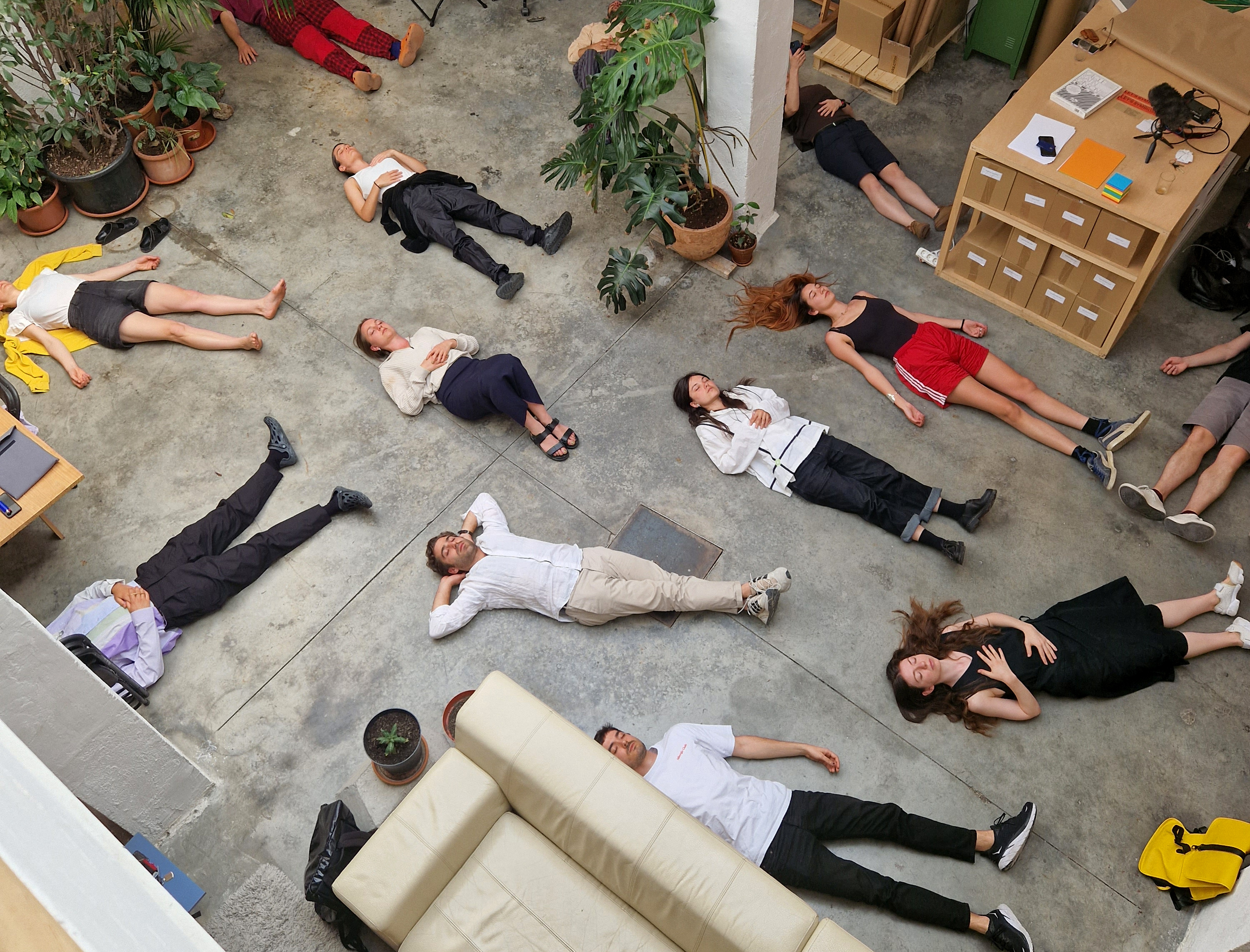
Collective listening session during PIP 2023 at the Institute for Postnatural Studies
FOR WHOM
The PIP is addressed to a diversity of profiles in terms of education, experience, and aspirations: candidates from both art and theory, curators, philosophers, designers, scientists, researchers, educators, mediators or anyone interested in exploring contemporary ecological debates. It is oriented to those with a preconceived context/knowledge of these themes and willing to expand their theoretical background and research methods.
Approximately 30 participants are selected based on their profiles and research interests. The selection is based on experience and intent, and its adequacy with the main lines of the program. Group diversity and coherence is attempted in this process. It is advisable to have a medium level of English, oral and written.
Grow alongside peers from art, theory, design, science, and beyond. PIP is a safe space to test ideas, exchange practices, and imagine desirable futures

Sensing the Unheard workshop led by Tom Fischer and Simon Williams during the PIP 2025 second In-person Encounter
CONCEPTUAL FRAMEWORK
This program revolves around the concept of postnature, offering an ecology of diverse perspectives around contemporary political, social, economical, and aesthetic issues. It functions as a debate platform from which to investigate, problematize, discuss and multiply new approaches to artistic and thought practices through the exploration of more-than-human ethics that contribute to the definitive dissolution of the nature-culture binomial in all its sequels, variants and consequences.
The idea of a romanticized nature as a background scenario or neutral framework where human activity simply takes place is no longer valid and must be replaced by a broader and more complex reflection. From a critical perspective, we must deepen into the various layers, hybrid codes, and entanglements that compose it. The environment can no longer be read only as a resource to be managed, nor as a set of given circumstances to which we must adapt, but as one of the main cultural-material constructions of modernity.
The program also navigates concepts such as the Anthropocene or the Chtulhucene in its multiple meanings and implications, ecological parliaments and perspectivism, colonialism and the necropolitics associated with human and non-human “resources”, new materialisms, sound ecologies, ecofeminisms, and queer theories. Through practical and critical sessions, the goal is to articulate a change of perspective allowing for the proliferation of voices and points of view reflecting on the problem of nature in the contemporary moment.
REGISTRATION CALENDAR
The course runs from January 19th, 2026 to June 6th, 2026, and is into 3 modules.
Open call: From September 10th to November 16th
Review of applications: From November 17th to November 30th
Notification of selected applicants: December 1st
Enrollment: From December 2nd to January 5th
A program where philosophy meets ecology, art becomes collective practice, and theory meets embodiment
PROGRAM METHODOLOGY
The PIP approaches learning through an interdisciplinary lens, exploring a variety of formats. The Theoretical Modules take place online and include conversations, lectures, and experimental embodied exercises led by IPS faculty and guest speakers. Each session is accompanied by reading materials, shared in advance, encouraging participants to situate ideas within broader cultural, political, and ecological frameworks.
To nurture a continuous Collective Sharing, the program provides space for participants to connect with one another and with their practices through individual and group methodologies, all within a safe and supportive environment. Peer-to-peer learning is considered a central part of the program: participants are encouraged to bring in their own references, contexts, and questions, making the cohort itself an active source of knowledge and inspiration.
As a way of cultivating artistic and personal explorations, the PIP hosts open Laboratories in which participants engage in collective creative practices. Over the years, these opportunities have revealed themselves as fertile grounds for meaningful exchanges where thinking, feeling, and acting together strengthen bonds and artistic inquiry. The PIP embraces a malleable and porous approach to learning, valuing not only the knowledge shared but also the possible kinships and futures that can emerge in the process.
Lastly, the Institute for Postnatural Studies in collaboration with a local cultural institution hosts two In-Person Gatherings in Madrid to deepen the connections and practices initiated online, but also as a way for the participants to engage with the cultural landscape of the city. While attendance is not required, it is highly encouraged.
PREVIOUS EDITIONS
Hybrid learning: 3 online modules + 2 in-person encounters in Madrid
HYBRID LEARNING
- 01.
- 02.
- 03.
Collective Sharing
As the program navigates some of the most prominent philosophical and ecological concepts of our delicate, yet fertile times, PIP will hold continuous space for participants to share the thoughts and emotions that arise from the theoretical modules. These moments of critical and reflective thought support both personal and artistic growth, fostering a more horizontal and collective learning process. It is important to acknowledge the emotional dimension that accompanies thinking and theorizing. In addition, the PIP integrates opportunities for participants to present their own practices and projects, opening pathways for future collaborations and encouraging deeper connections within the group.
LABORATORIES
Participants’ projects and ideas are shared and discussed within the group, fostering conversations that encourage the cross-pollination of research expressions and contemporary interests. The PIP invites practices to be enriched, transformed, and reinterpreted within a permeable environment that promotes the sharing of both theoretical and emotional knowledge.
In line with the program’s commitment to collective creation, the cohort engages with IPS’ podcast platform, Tender Radio, as a space to explore collaborative audio practices. Participants may experiment with storytelling, interviews, music, sound, or other formats that emerge from the group’s curiosity and methods. Previous editions offer examples of how diverse approaches can converge into rich collective outcomes.
The constellation of methods, expertise, experiences, and situated perspectives that the group brings together creates fertile ground for generating content that responds to present urgencies, fosters meaningful dialogue, and cultivates potential kinships within and beyond the PIP community.
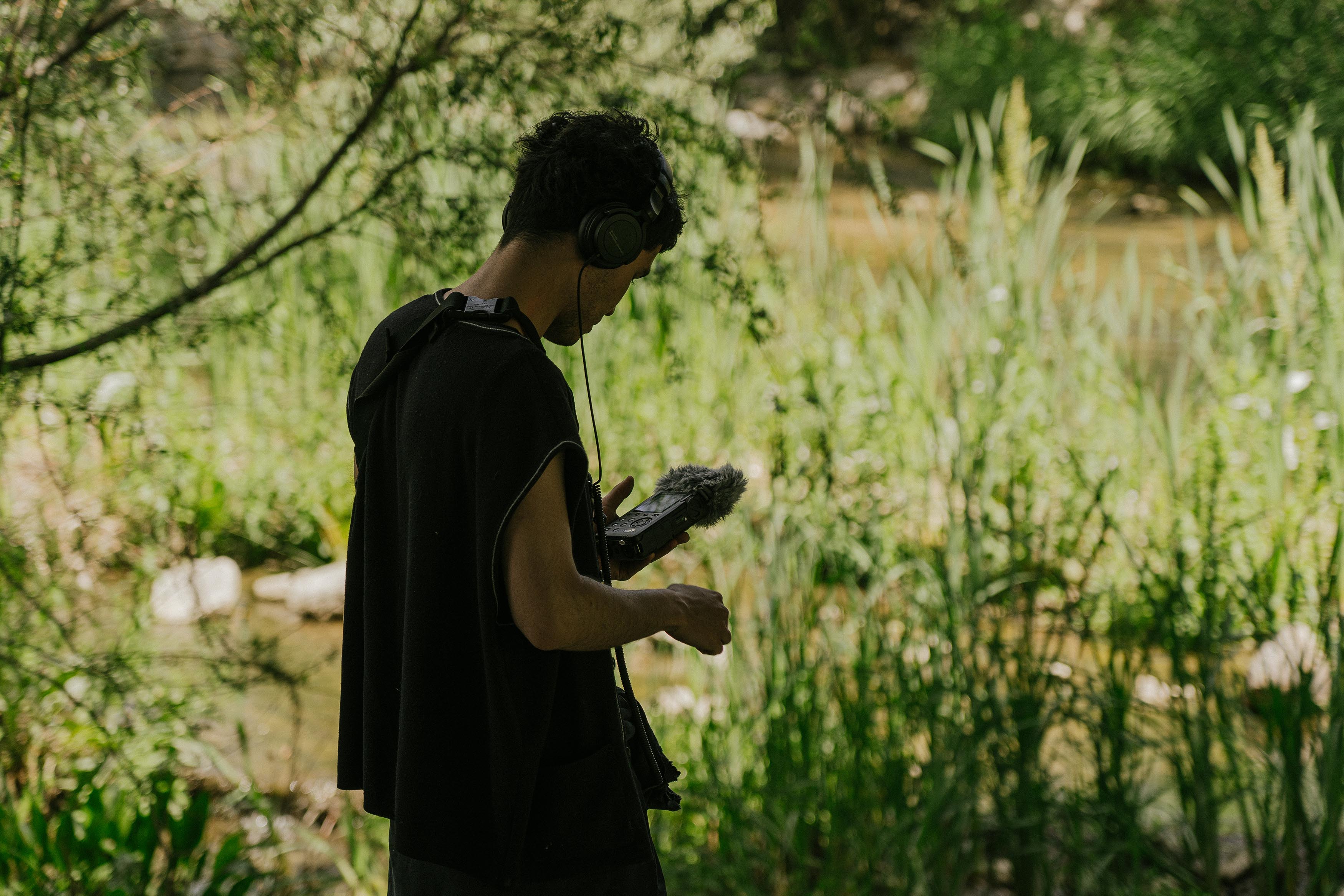
Collective practice Laboratories at the Manzanares river during the PIP 2023 second In-person Encounter. Photo by María Eugenia Serrano
From virtual dialogues to real encounters: Field trips, laboratories, and collective celebrations
ENCOUNTERS: In-person gatherings in Madrid
During PIP, the Institute for Postnatural Studies hosts two in-person encounters in Madrid aimed at weaving connections between local initiatives and international agents. These gatherings—while optional—are highly encouraged, offering space for embodied learning, collective practice, field visits, and celebration.
The first gathering takes place mid-course, from March 23rd to 27th, 2026. During this week, we go on field trips, engage in moments of sharing, visit cultural institutions and postnatural landscapes around Madrid to elaborate on and embody the course research through personal relationships and interactions.
The program concludes with a second encounter, taking place from June 1st to 6th, 2026. With the guidance of a renowned curator (to be announced), this final gathering is a space to celebrate our collective journey serving as the foundation for the potential futures unfolding after the program.
The participants assume the transportation and housing costs to meet during these encounters but our team gladly helps in the organization and arrangement of these matters.
LA CASA ENCENDIDA, INSTITUTIONAL PARTNER, MADRID
Supported by our cultural partners, the final encounter transforms research into public celebration.
Local Institutional Partner: LA CASA ENCENDIDA
This year, the PIP counts on the institutional partnerships of La Casa Encendida (LCE). As a key collaborator, LCE will host the program’s final encounter, becoming a fundamental ally in shaping and supporting the closing event of this edition. LCE is a vibrant cultural and social center located in the heart of Madrid. Known for its multidisciplinary approach, it offers spaces for contemporary art exhibitions, workshops, performances, and community initiatives. With a strong commitment to social innovation, sustainability, and inclusive education, LCE fosters dialogue and creativity across diverse audiences and disciplines.
Learn directly from internationally renowned philosophers, artists, curators, and mediators
FACULTY
-
KAREN BARAD

Karen Barad is Distinguished Professor of History of Consciousness at the University of California at Santa Cruz, with an affiliation in Philosophy. Barad's Ph.D. is in theoretical particle physics and quantum field theory. Barad held a tenured appointment in a physics department before moving into more interdisciplinary spaces. Barad is the author of Meeting the Universe Halfway: Quantum Physics and the Entanglement of Matter and Meaning (Duke University Press, 2007) and numerous articles in the fields of physics, philosophy, science studies, and nuclear studies. Barad's research has been supported by the National Science Foundation, the Ford Foundation, the Hughes Foundation, the Irvine Foundation, the Mellon Foundation, and the National Endowment for the Humanities. Barad is a founding member of the Science & Justice Research Center and served as the Director of the Science & Justice Graduate Training Program at UCSC. Barad is the recipient of an honorary doctorate from Gothenburg University, a Fulbright fellowship, and the Kresge College Teaching Award, among other honors.
-
DENISE FERREIRA DA SILVA

The artist and philosopher Denise Ferreira da Silva is the Samuel Rudin Professor in the Humanities and Co-Director of the Critical Racial & Anti-Colonial Study Co-Laboratory at New York University and adjunct professor at the Monash University School of Art, Architecture, and Design (Australia). Her artistic and academic work reflect and speculate on themes and questions crucial to contemporary philosophy, aesthetics, political theory, black thought, feminist thought, and historical materialism. She is the author of Toward a Global Idea of Race (University of Minnesota Press, 2007), The Impagavel Divide (Workshop of Political Imagination and Living Commons, 2019), Unpayable Debt (Stenberg / MIT Press, 2022) and co-editor (with Paula Chakravartty) of Race, Empire, and the Crisis of the Subprime (Johns Hopkins University Press, 2013)
-
JUSSI PARIKKA

Jussi Parikka is Professor in Digital Aesthetics and Culture at Aarhus University in Denmark. He is also visiting professor at Winchester School of Art (University of Southampton). In 2021 he was elected as a member of Academia Europaea. His published books include Insect Media (2010), Digital Contagions (2007/2016), A Geology of Media (2015), and A Slow, Contemporary Violence (2016). Recently, he co-edited Photography Off the Scale (2021) and is the co-author of The Lab Book: Situated Practices in Media Studies (2022). His book Operational Images was published in 2023 and in 2024, he published with Abelardo Gil-Fournier the book Living Surfaces. Both of these are available as open access too. Parikka’s books have been translated into 12 languages including Japanese, Korean, Chinese, Czech, Italian, French, Spanish and Portuguese. He has also worked as curator, including as part of the curatorial team of transmediale 2023 and Helsinki Biennial 2023, as well as the co-curator of Motores del Clima (Laboral, Gijon, 2023-2024).
-
BAYO AKOMOLAFE

Bayo Akomolafe (Ph.D.), rooted with the Yoruba people in a more-than-human world, is the father to Alethea Aanya and Kyah Jayden Abayomi, the grateful life-partner to Ije, son and brother. A widely celebrated international speaker, posthumanist thinker, poet, teacher, public intellectual, essayist, and author of two books, These Wilds Beyond our Fences: Letters to My Daughter on Humanity’s Search for Home (North Atlantic Books) and We Will Tell our Own Story: The Lions of Africa Speak, Bayo Akomolafe is the Founder of The Emergence Network, a planet-wide initiative that seeks to convene communities in new ways in response to the critical, civilizational challenges we face as a species. He is host of the postactivist course/festival/event, ‘We Will Dance with Mountains’. He currently lectures at Pacifica Graduate Institute, California. He sits on the Board of many organizations including Science and Non-Duality (US) and Ancient Futures (Australia). In July 2022, Dr. Akomolafe was appointed the inaugural Global Senior Fellow of University of California’s (Berkeley) Othering and Belonging Institute.
-
CHUS MARTINEZ

Chus Martínez is head of the Institute Art Gender Nature FHNW Academy of Arts and Design in Basel. She was the expedition leader of The Current, a project initiated by TBA21–Academy (2018–2020) and between 2020-2022 she has been the artistic director of the Ocean Space, Venice, a space initiated by TBA21–Academy. The Current is also the inspiration behind Art is Ocean, a series of seminars and conferences held at the Institute Art Gender Nature which examines the role of artists in the conception of a new experience of nature. At the Institute Art Gender Nature she is currently leading the research project The Gender’s Factor, on the role of education in enhancing women’s equality in the arts. She remains as associate curator of TBA21 Academy as well as curator at large at The Vuslat Foundation in Istanbul. Born in Spain, Chus Martínez has a background in philosophy and art history. She previously worked as chief curator at El Museo Del Barrio, New York. For dOCUMENTA(13) (2012) she was head of department, and a member of the Core Agent Group.
-
BRIGITTE BAPTISTE

Brigitte Baptiste is one of the most influential figures in biodiversity, sustainability, and gender diversity matters globally. A Colombian biologist who graduated from the Pontificia Universidad Javeriana, she holds a Master's degree in Latin American Studies with an emphasis on Tropical Conservation and Development from the University of Florida. Her academic career and her impact on environmental management have earned her two honorary doctorates: in Environmental Management from Unipaz and in Law from the University of Regina. For almost a decade, she led the Alexander von Humboldt Biological Resources Research Institute, first as deputy director of research and then as director. Since 2019, she has served as Rector of EAN University, a pioneering institution in sustainable entrepreneurship and ecological transformation in Latin America.
-
HELEN HESTER

Helen Hester (b. 1983, she/her) is Professor of Gender, Technology and Cultural Politics at the University of West London. Her research interests include technofeminism, sexuality studies, and theories of social reproduction. Her recent publications include: After Work: A History of the Home and the Fight for Free Time (with Nick Srnicek, Verso, 2023), Xenofeminism (Polity, 2018) and Beyond Explicit: Pornography and the Displacement of Sex (SUNY Press, 2014). Her latest book, Post-Work: What it is, why it matters, and how we get there (with Will Stronge) will be out with Bloomsbury later this year.
-
GABRIEL ALONSO

Gabriel Alonso is Co-Director and Faculty of PIP. Born in Madrid, he is an artist and researcher, trained between the ETSAM (Madrid), the Technische Universität (Berlin), and Columbia University in New York at the MS-CCCP, where he graduated with honors in 2018. In his works, through various formats such as installation, sculpture, photography, or video, he investigates the contemporary relationships between fiction and materiality, to blur the binomials between the real and the imagined, between the natural and the cultural. In 2020 he founded the Institute of Postnatural Studies.
-
YURI TUMA

Yuri Tuma (1983, Brazil) is Co-Director and Faculty of PIP. He is a multidisciplinary artist based in Madrid whose work explores sonic and queer ecologies through collective practices, sound art, installation, and performance. His practice challenges the human/animal divide imposed by science and Western thought, using sound and collaboration to imagine more interconnected futures. In 2020, he co-founded the Institute for Postnatural Studies (IPS), a center for artistic experimentation from which to explore and problematize postnature as a framework for contemporary creation.
Apply until November 16th — join an international cohort of 30 participants
Overall Format and Calendar
Full term runs from January 19th to June 6th, 2026
Mondays and Wednesdays from 6 to 8 pm (CET). There are four Laboratories in the program — during those weeks, a third session takes place on Tuesdays.
Two in-person gatherings in Madrid: Mar. 23rd to Mar. 27th and June 1st to 6th, 2026.
All sessions and lectures are recorded and will be available online for reference or in case of absence.
There will be access to digital folders of study materials.
All sessions will be in English.
Submission of applications
Interested applicants must submit the following documentation through the online form:
Overview of your practice (artistic, theoretical, scientific, pedagogical...) with a maximum length of 500 words.
Motivation letter, with a maximum length of 500 words.
Research or artistic portfolio.
Curriculum vitae.
Optionally, the following documentation may be submitted:
Letters of recommendation, maximum two.
Submissions will be accepted until November 16th, 2025.
FEES
Tuition fee
2,500 € per participant
Includes
Registration, tutorships, an online bibliography, and study materials.
Payment
The fee can be paid in a lump sum or in need-based installments. The first 50% should be paid before the beginning of the course, and the remaining balance within the first two months through direct debit.
Additional costs
Travel and accommodation expenses for the in-person encounters in Madrid are not included.
INSTITUTIONAL PARTNERSHIPS
The Postnatural Independent Program is supported by a network of cultural institutions that share our commitment to accessibility and diversity. These are intended to support applicants facing systemic and economic barriers, including (but not limited to) those affected by their ethnic or national identities, and geopolitical or economic conditions of their countries of origin or residence. This includes individuals who identify as Black, brown, people of color, Global Majority, mixed-race, or of multiple heritage, and/or who are from the Global South, Latinx communities, or diasporas. We also encourage applications from individuals with disabilities or those experiencing economic hardship due to health conditions or other diversity-related factors.
SCOLARSHIPS
For the 2026 edition, three types of scholarships are available:
Goethe-Institut Scholarship
Offered in collaboration with the Goethe-Institut Madrid, this scholarship covers the full tuition fee and is open to residents of Germany. It also includes accommodation at the Goethe-Institut's residency facilities in Madrid during the in-person encounters.
More details and application here.
Netherlands Embassy Scholarship
Offered in collaboration with the Embassy of the Kingdom of the Netherlands in Spain, this scholarship covers the full tuition fee (€2,500) and is open to residents of the Netherlands who have developed part of their professional career in the country. The selected participant may also apply for additional support from the Mondriaan Fonds to cover travel and accommodation expenses.
More details and application here
IPS Scholarship
The Institute for Postnatural Studies offers one scholarship aimed at applicants from the Global South. This scholarship covers full tuition. Participants may apply for external funding to cover travel and accommodation costs, and IPS will provide letters of support or documentation to assist in these applications.
More details and application here
All applicants are encouraged to reflect on their situation and needs before requesting any of the scholarships. Applications will be reviewed confidentially and internally.
IPS can provide letters of support or documentation to assist scholarship recipients in applying for external funding to cover travel and accommodation costs.
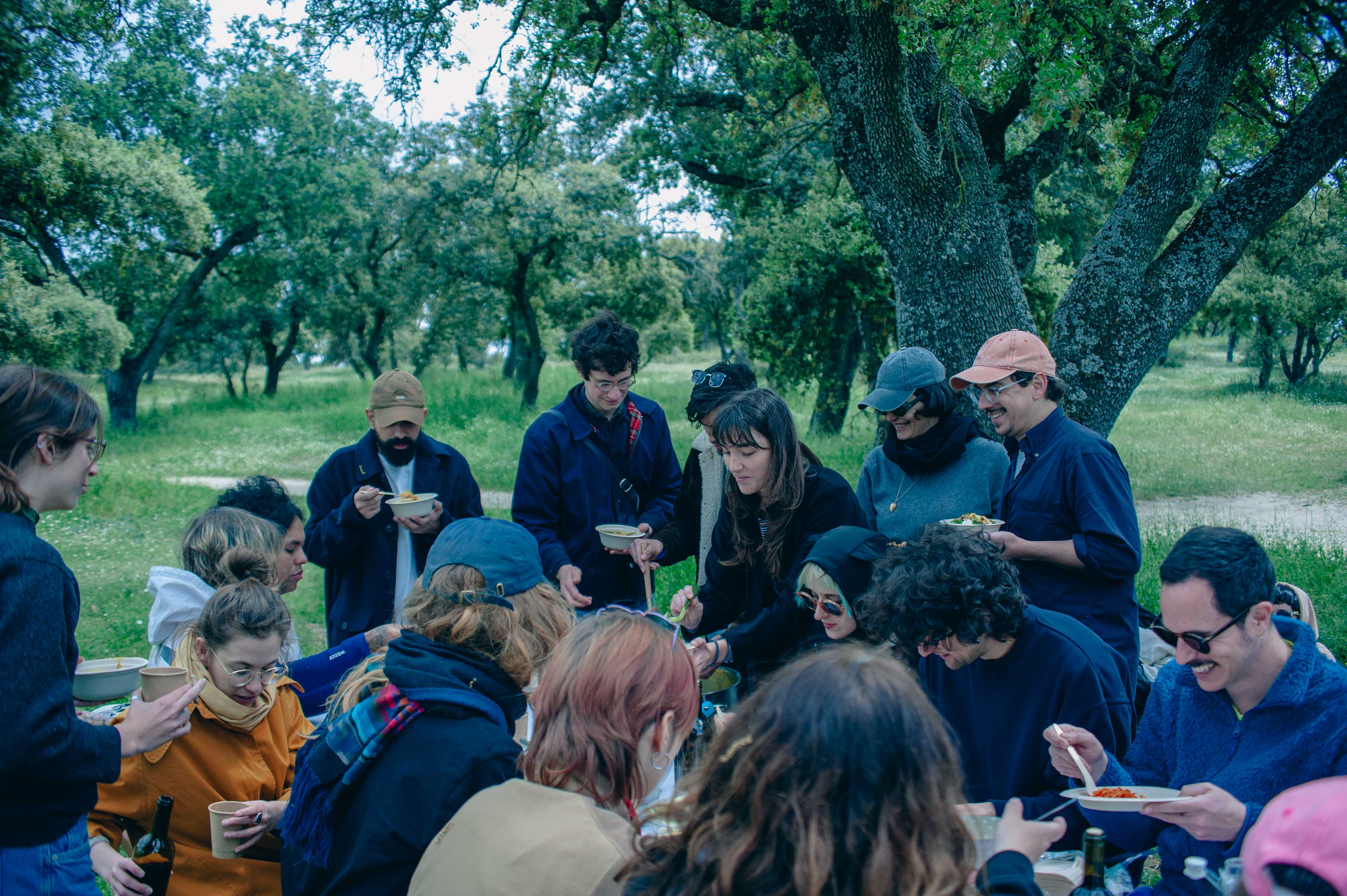
Collective sharing in collaboration with Paisanaje during PIP 2024
Learning as kinship: new voices, new methods, new alliances
Inquiries
Those wishing to participate in the fourth edition of the Postnatural Independent Program) must submit an application using the form before November 16th, 2025, attaching an overview of their practice, a motivation letter, a CV, and a research or artistic portfolio. Optionally, up to two letters of recommendation may be submitted.
If you have any questions, please send an email to: pip@instituteforpostnaturalstudies.org
PREVIOUS EDITIONS
PIP 2025 - TENDER RADIO
On the last Postnatural Studies Program, Tender Radio came to fruition with seven different inaugural podcast episodes to the new radiophonic tradition of the program. In a brave collective journey of starting something new, the participants of the PIP 2025 have taken us on a journey: through amnesic landscapes of grief, clairvoyant and spectral phone calls, becoming one with stromatolites, planetary metabolism, tectonic plate orgies, and invitations to rest as a form of deep transformation. From a conceptual standpoint, we were guided by the complex and multifaceted idea of healing as a hybrid force that combines both the individual and the collective. In a moment when we are faced with continuous wars and genocides, the word “healing” raises many questions about privilege, justice, interspecies coexistence, and planetary siblinghood. You can listen to Tender Radio in this link.
Cohort 2025: Jan Araújo Fernandes, Inês Barros, Hailey Basiouny, Sabrina Saddul Basilio, Lena Becerra, Irina Anca Bobei, Martina Camani, Helen Yin Chen, Lhotse Collins, Abri de Swardt, Tuçe Erel, Elena Falomo, Anna Ivanova, Yingxi Ji, Tamara Kalo, Anna Karinvinge, Yoojin Lee, Courtney Mackedanz, Fabiana Martinez Pelaez, Maja ∀. Ngom, Ariana Nuala, Joy Pepe, Valerie Prinz, Viktoriia Privalova, Kutlwano Remofilwe Ramphele, Julian Rieken, Sondi Rumohr, Helene Schulze, Oana-Theodora Stefan, Alessandro Tollari, Ali Vanderkruyk, Joanna Wierzbicka, Sara Willa, Javiera Peón-Veiga Petric, Jess Zamora-Turner
PIP 2025 - TENDER RADIO
PIP 2024 - A BOOK FOR DISSAPEARANCE
The second edition of the PIP led us to question what we understand by "vision" and "image" in the era of artificial intelligence. What does it mean "to see" when the human psychophysiological process of vision is transformed into reading images that are the result of data and parameters? How do the machines around us see? What visual landscapes do they imagine? With the cohort, we critically engaged with these questions to co-edit and co-write a collective editorial project titled A Book for Disappearance. The book not only focused on the disappearance of environments and ecosystems and the loss of biodiversity, but also on our shared loss of privacy and intimacy, of identities and cultures, of lands and territories, and ultimately, of our very future. You can find the publication at this link.
Cohort 2024: Ishaan Aggarwal, Mio Al-Hashimy, Guillem S. Arquer, Alvaro Azcarraga, Elisa Balmaceda, Abdulla Buhijji, Elizabeth Burmann Littin, Walla Capelobo, Traian Cherecheș, Nadine El Khoury, Veronika Gryshchuk, Jœëllâ Kálâlã, Ryder Kimball, Zoe Keller, Barbara Kiolbassa, Gina Sara Kashi Proenza, Alex Knychalska, Lena Kuzmich, Anna-Katharina Laboissière, Annika Kappner, Paulina Mirowska, Lena Michalik, Shayma Nader, Rithika Pandey, Laura Pante, Florencia Pochinki, Ella Rosenblatt, Yo-E Ryou, Antonine Scali Ringwald, Tom Shepherd-Barron, Natalia Sorzano, Catherine Taft, Grace Leonora Turtle, Joke Van den Heuvel.
PIP 2024 - A BOOK FOR DISSAPEARANCE
PIP 2023 - WE?
As the inaugural edition of the Postnatural Independent Program, it was only natural that our six months together were shaped by opportunities to grow and to reflect on our presence in the world. Inspired by the question “We?” and collectively with the cohort we realized that worlding, the practice of enacting worlds to come, must start by rethinking who “we” are, why “we“ are (what “we“ are supposed to be), where “we“ come from, and what new subjectivities other worlds can bring with them. In order to share all of the thoughts, contradictions, frictions, and emotions that emerged from our time together, the cohort coedited and co-wrote an editorial project with Cthulhu Books that can be downloaded for free here.
Cohort 2023: Aliaskar Abarkas, Sol Archer, Felix Bell, Sara Bonaventura, Madison Bycroft, Diogo da Cruz, Sai Di, Adriana Gallo, Caterina Gobbi, Hannah Hallam-Eames, Ishita Jain, Ama Josephine Buge Johnstone, Noa Wanita Maria Jansma, Andrea Lumpleker, Davide Marcianesi, Matheline Marmy, Lisa Mazenauer, Lindertje Mans, Victoria Muthiani (V for 5 Victoria Muthiani), Ania Mokrzycka, Ana Roman, Ana Rosela del Bosque, Maria Maite Rodriguez, Raju Rage, Kosmas Phan Dinh, Korallia Stergides, Natália Trejbalová, Caroline Ward, Dominika Wasilewska, Lissy Willberg.
PIP 2023 - WE?
PIP TEAM
Previous faculty and guests: Ayesha Hameed, Emanuele Coccia, Carmen Lael Hines, Filipa Ramos, Stacy Alaimo, Gesyada Siregar, Institute Of Queer Ecology, Claire Colebrook, Lorenzo Sandoval, Cary Wolfe, Paloma Lomas Contreras, Mary Maggic, Uriel Fogué, Tom Fischer (Action Pyramid), Simon Williams (Sunny Graves), Nicolas Jaar, and Eli Wewentxu.
Gabriel Alonso
Program Co-Director and faculty
Yuri Tuma
Program Co-Director and faculty
Karol Muñozcano
Program Manager & Institutional Relations
Elena Brea Sandín
Student Coordinator & Mediation
Devon Miller
Program Assistant and Operations Coordinator
Alicia Sanchez
Graphic & Visual Designer
FAQs
FREQUENTLY ASKED QUESTIONS
- 01.
- 02.
- 03.
- 04.
- 05.
- 06.
- 07.
- 08.
- 09.
- 10.
- 11.
- 12.
- 13.
- 14.
- 15.
- 16.
- 17.
- 18.
